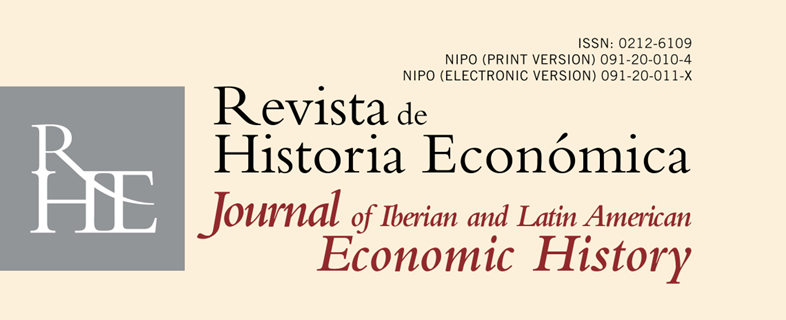Here’s a new paper by Hélder Carvalhal and I, the first outcome of this project, which is funded by ESRC. (The project website is here.) The paper is also available as a CEPR discussion paper.
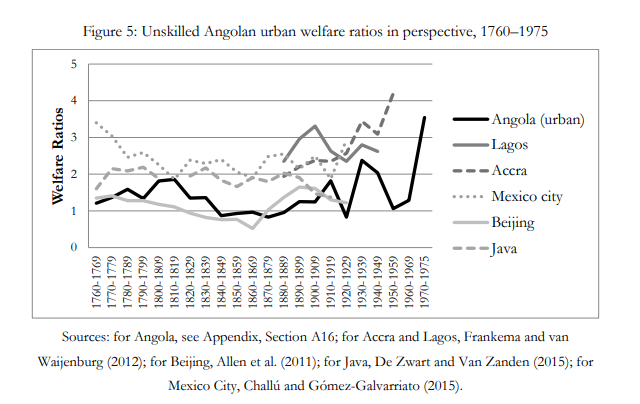
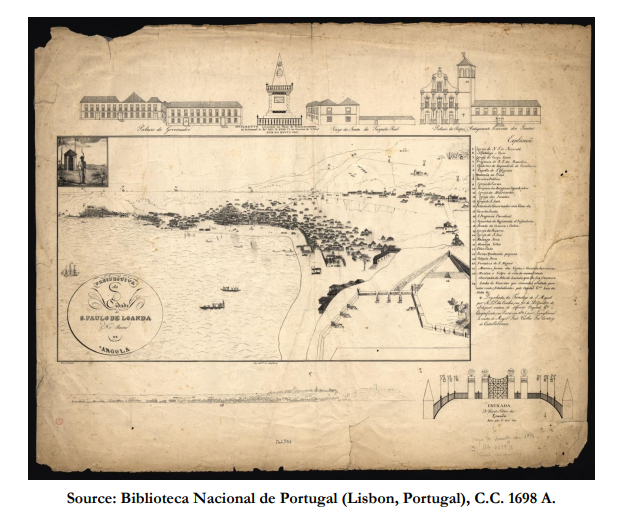
Here’s a new paper by Hélder Carvalhal and I, the first outcome of this project, which is funded by ESRC. (The project website is here.) The paper is also available as a CEPR discussion paper.


On Monday, 19 February 2024, the Arthur Lewis Lab for Comparative Development will announce the first awardee of its inaugural Hajnal Lecture, to be given annually at the University of Manchester.
This new lecture series is named after the late John Hajnal, in recognition of pivotal contributions to historical demography and his impactful tenure as a Simon Fellow at the University of Manchester in the 1950s.
With the gracious approval of John Hajnal’s next of kin, the Arthur Lewis Lab is proud to establish the Hajnal Lecture to honour his memory and reflect the University of Manchester’s commitment to fostering excellence in the fields of economic history and comparative development.
This prestigious annual lecture aims to commend the outstanding work of early- or mid-career scholars, specifically those within 15 years of completing their PhD, who have demonstrated exceptional contributions in their study of economic growth, political economy of development, and global inequalities from a long-run historical perspective.
For this annual lecture, the Arthur Lewis Lab partnered with the Quarry Bank Mill, one of the best-preserved factories of the Industrial Revolution, near Manchester, who will produce the fabric used for the physical award received by the winner.
A published version of the lecture will also be published in The Manchester School, a prestigious journal publishing high-quality research covering all areas of the economics discipline. This will contribute to the broader dissemination of knowledge and foster interdisciplinary exchange, in line with the lab’s dedication to advancing cutting-edge research with a focus on big questions and an historical dimension.
The award committee with be formed of the Director and Deputy Director of The Arthur Lewis Lab for Comparative Development, currently Professor Nuno Palma and Dr Guillaume Blanc, as well as the editor of The Manchester School, currently Professor Akos Valentinyi from the Department of Economics at the University of Manchester.
The university’s official announcement can be read here.
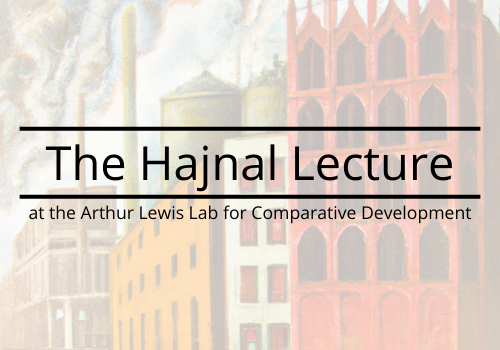
Conference to be held at the University of Manchester
Part of the CEPR Economic History programme
With generous support from the Hallsworth Conference Fund, University of Manchester.
Arthur Lewis Lab Conference #5
Date:
18-19 June 2024 (preceded by a graduate student workshop on the 17th)
Conference title:
Legal and institutional origins of economic development: lessons from the past
Note: This conference is expected to take place offline only.
Keynote speakers:
Christine Desan (Harvard University), Gary Cox (Stanford University), Nuno Garoupa (George Mason University), Peter Murrell (University of Maryland)
Conference organizers:
Guillaume Blanc, Jordi Caum, and Nuno Palma, Unversity of Manchester.
Conference theme:
We plan to accept papers that cover all aspects related to historical law and economics, in particular those focusing on measurable quantitative implications for comparative economic development.
Costs and funding:
There will be no conference fee. We have secured funding which will cover catering costs and dinner, as well as travel and accommodation costs for graduate students who do not have funds from their own institutions. We expect presenters to be a mix of junior and senior scholars. Pending on other ongoing funding applications, we may be able to fund additional benefits for those who need this in order to attend. However, it is unlikely that we will be able to fund full travel and accommodation costs for all participants. Tenured faculty, in particular, will be expected to cover their travel and accommodation costs.
Accommodation
We suggest Hyatt Regency as the accommodation in-campus. For those looking for budget accommodation, we suggest Luther King House.
Social visit
On morning of the day after the conference, there will be an optional visit to Ancoats, followed by lunch at the Curry Mile.
Deadlines:
March 31, 2024 – deadline to send us a paper proposal
April 8, 2024 – we will communicate the accepted proposals (and possibly a waiting list)
May 6 – final program will be posted
For applications, please submit a paper using this form. You can apply with only a title and abstract, but complete manuscripts have a higher chance to get accepted into the program. A poster session is likely to also take place.
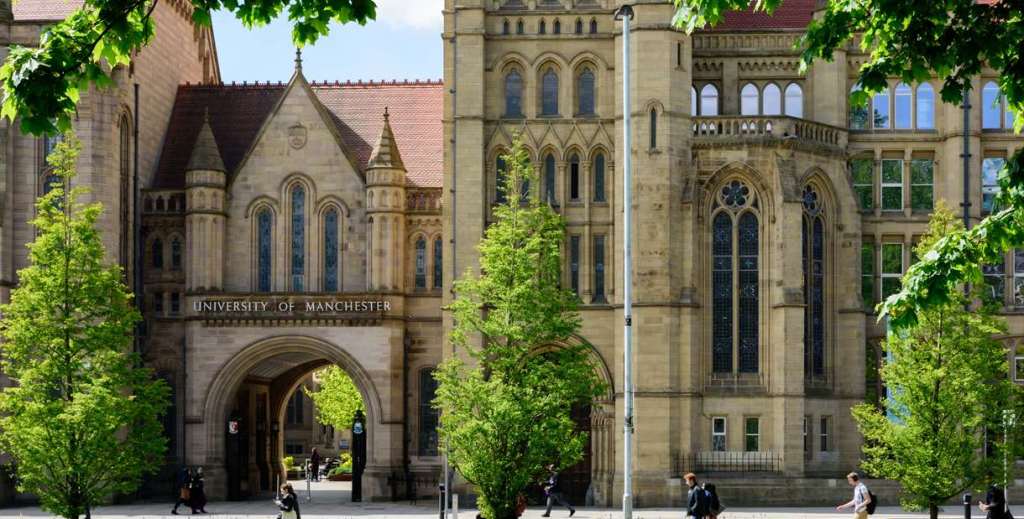
This conference recently took place in Manchester.
Interviews with the keynotes are available here.
DAY 1
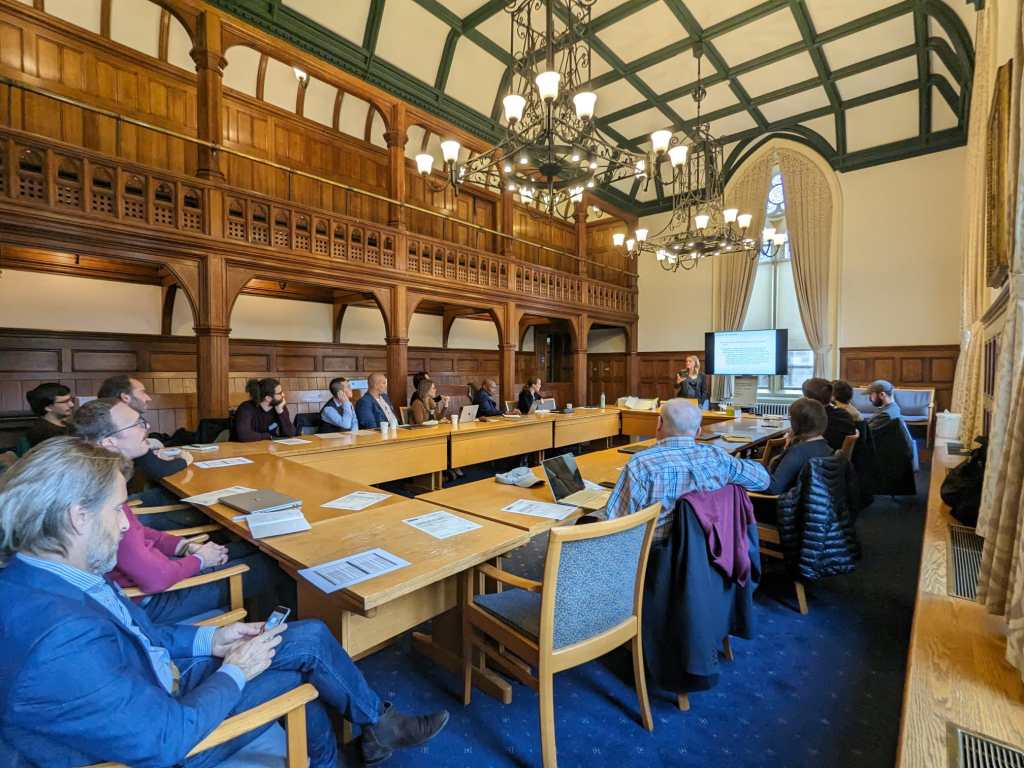
Leigh Gardner
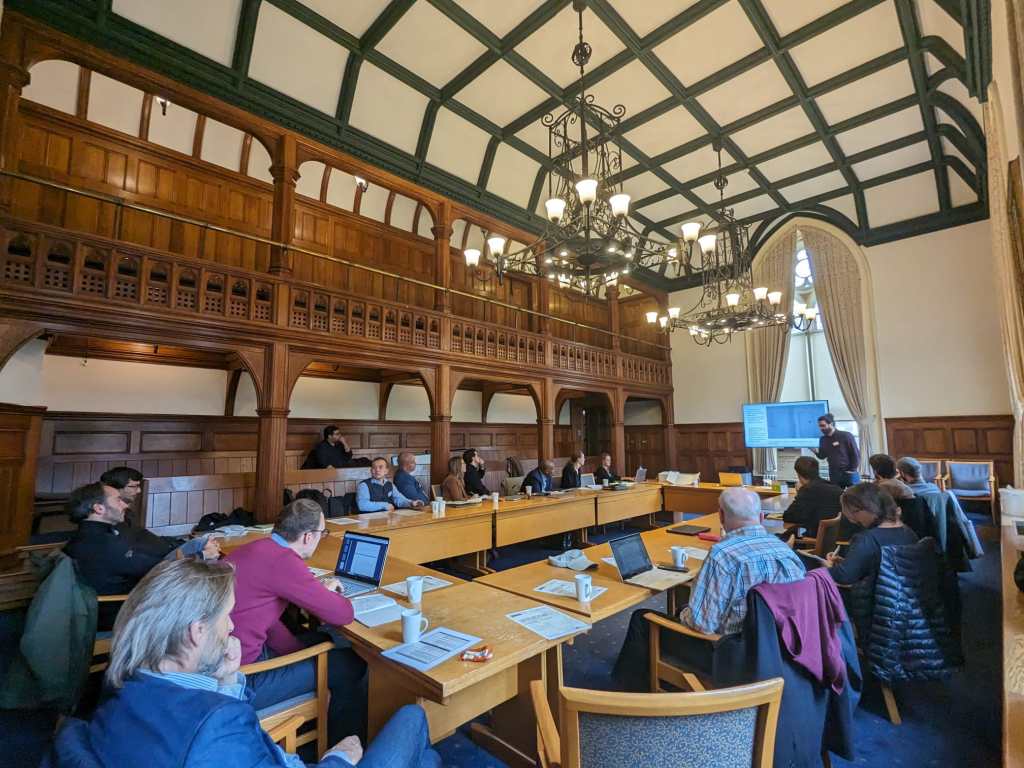
Hélder Carvalhal
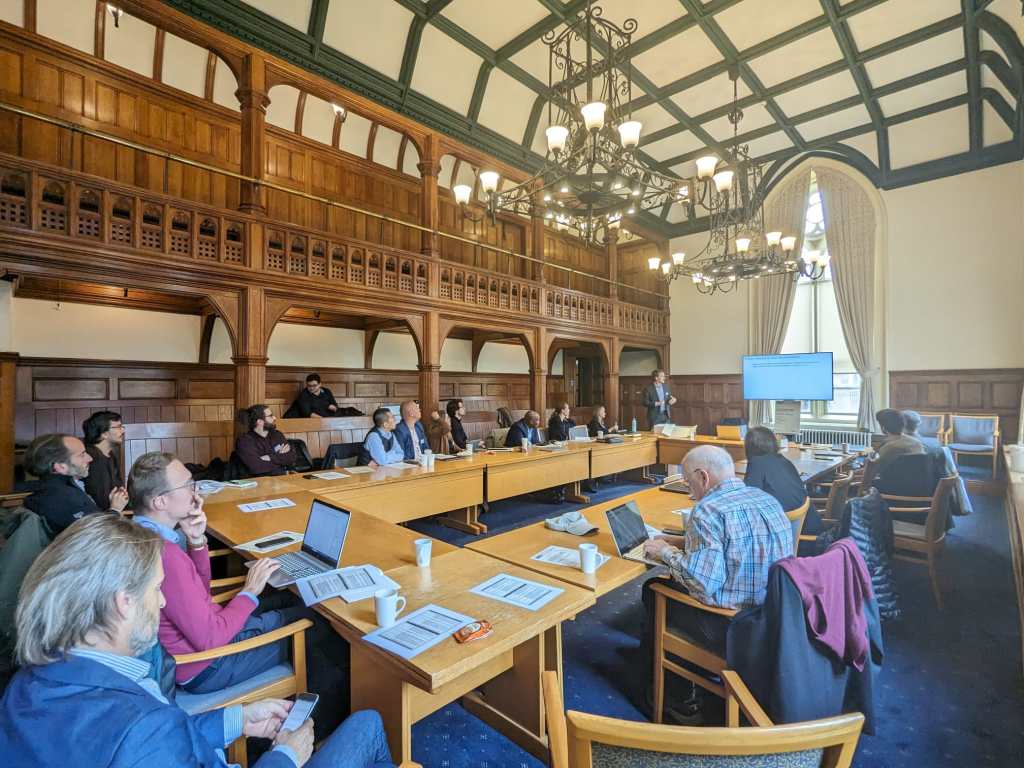
Soeren Henn
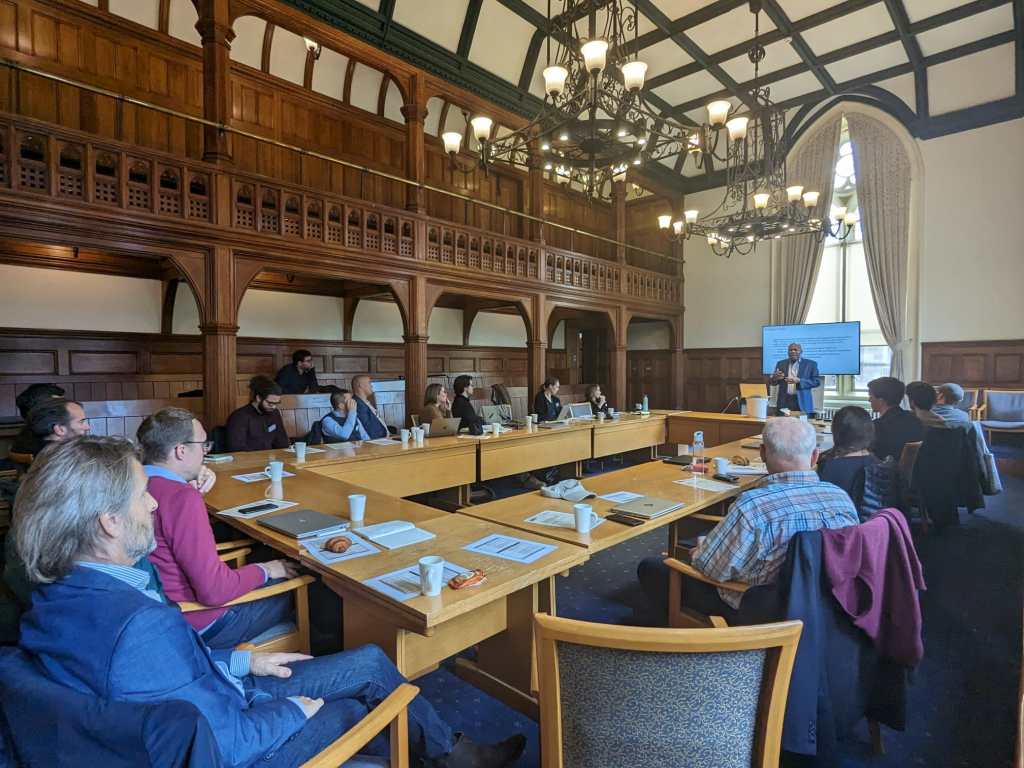
Leonard Wantchekon
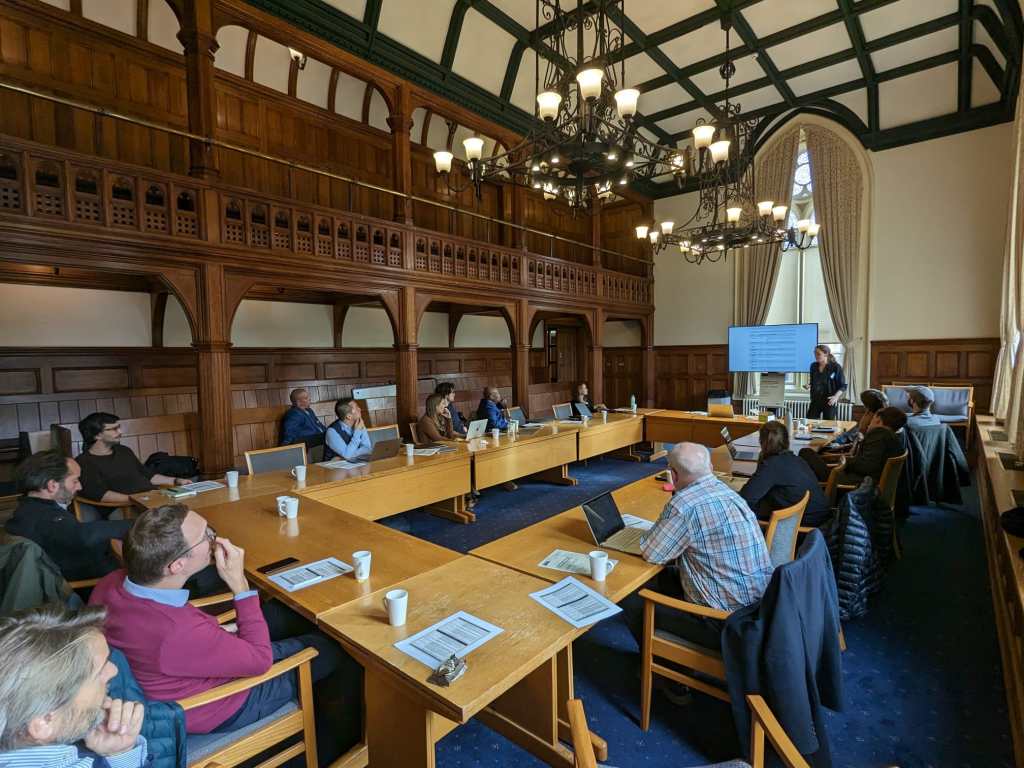
Rebecca Simson
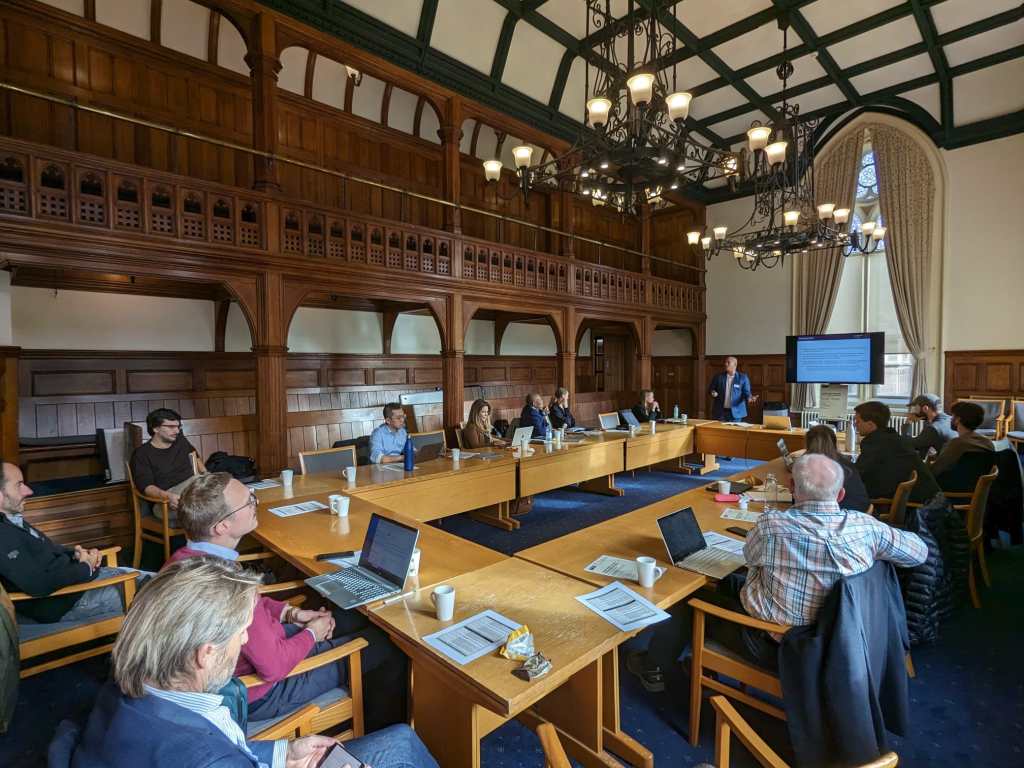
Cal Links
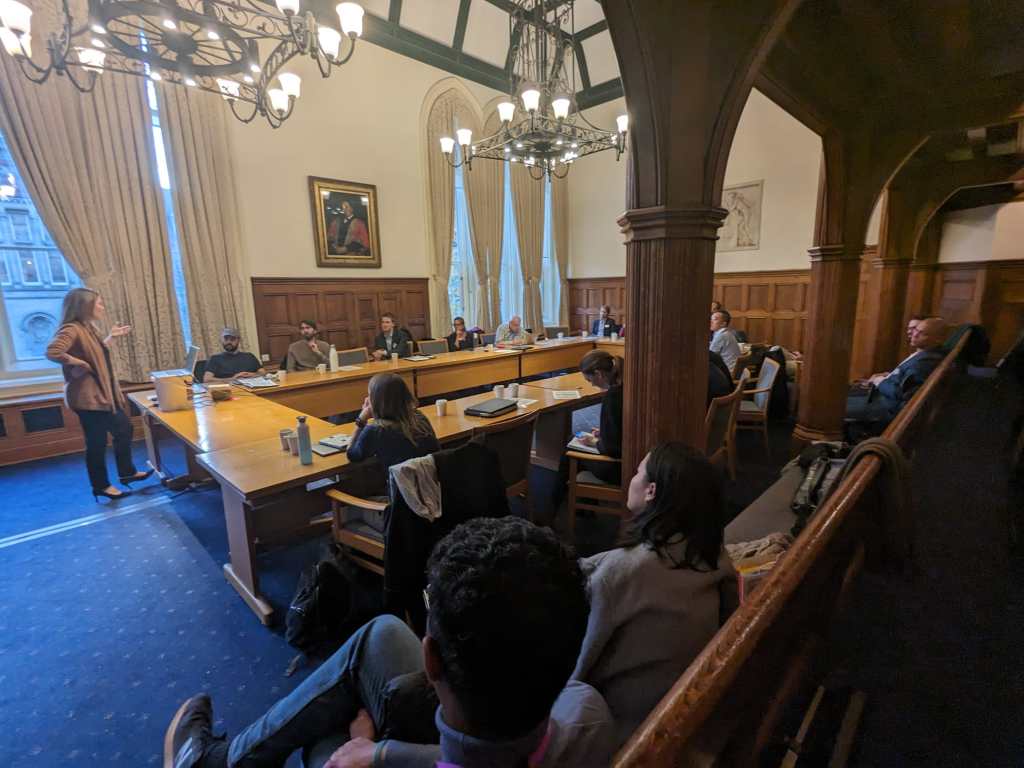
Marlous van Waijenburg
DAY 2
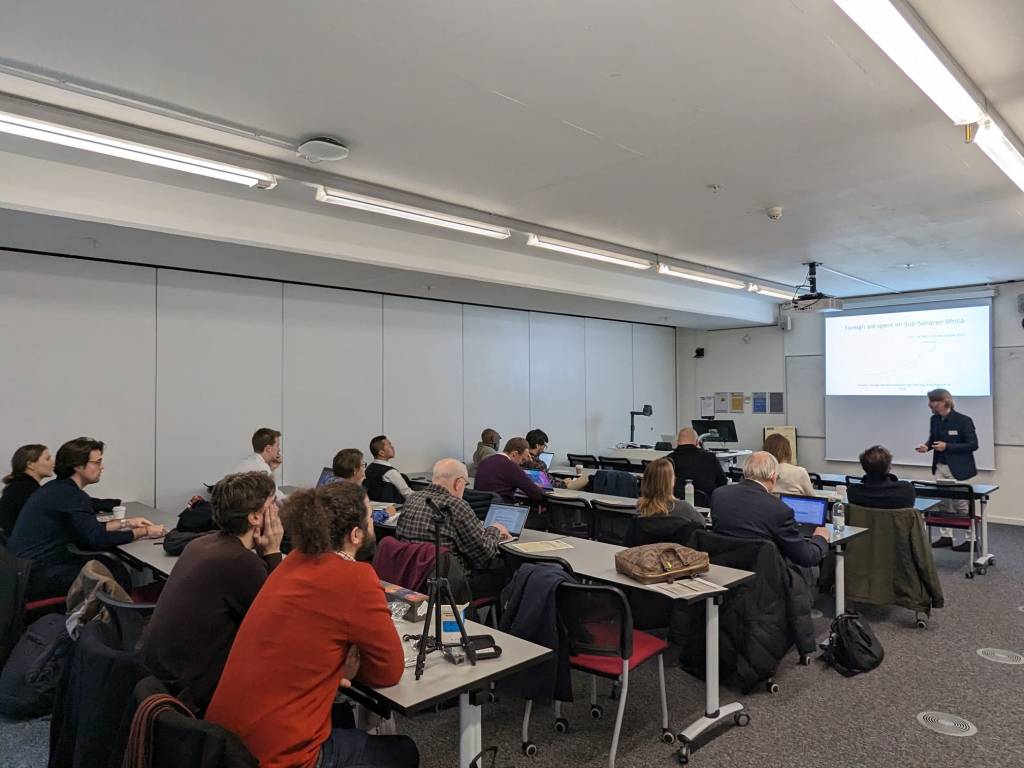
Jacob Weisdorf
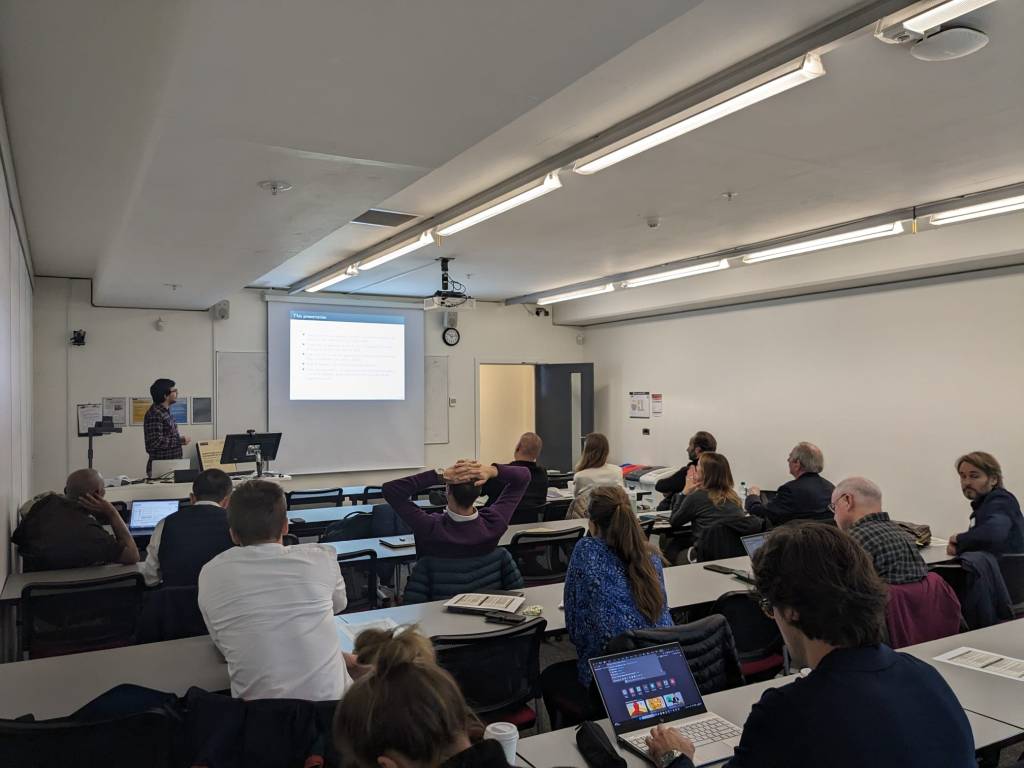
Guilherme Lambais
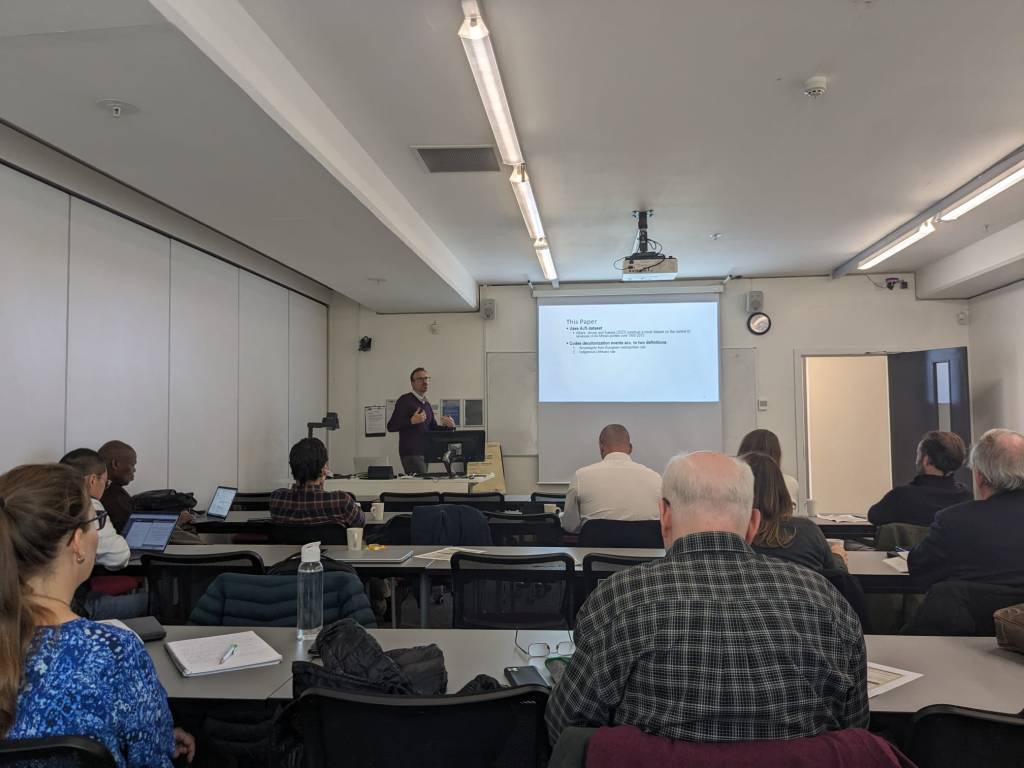
Marvin Suesse
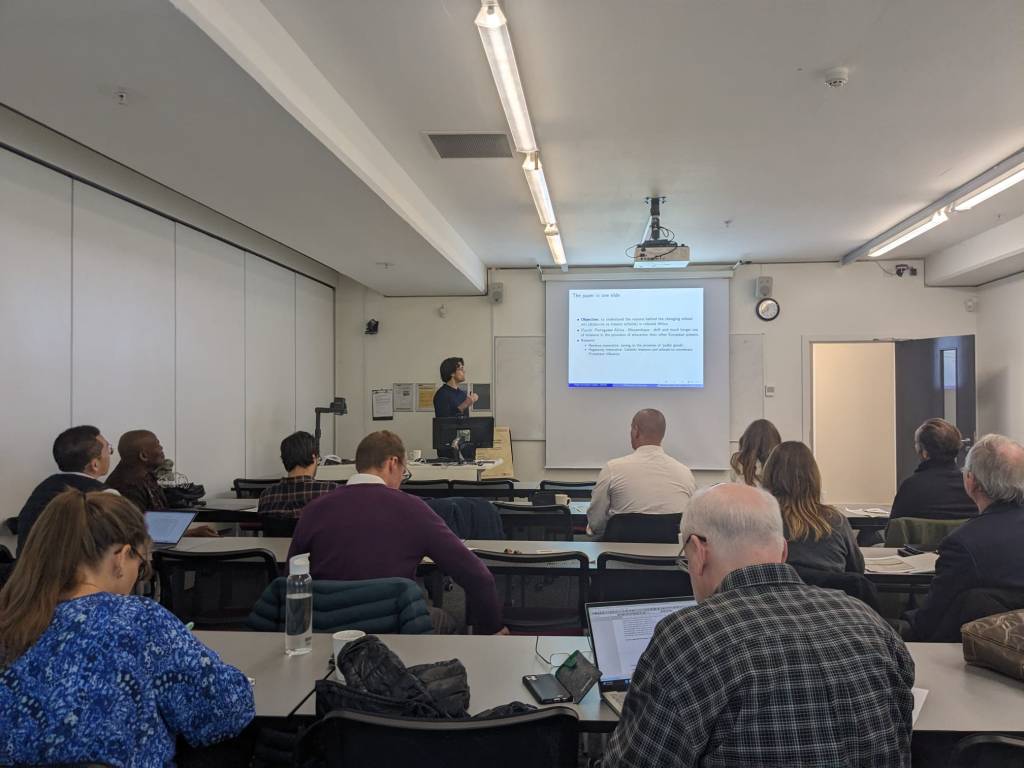
Pablo Fernández Cebrián
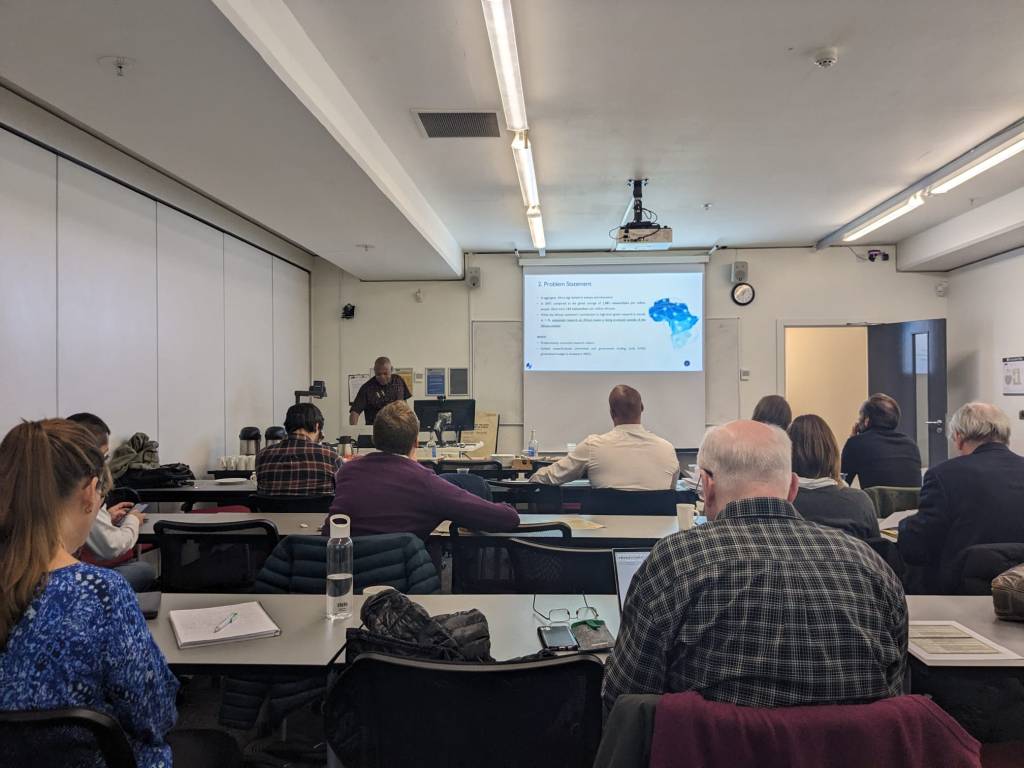
Leonard Wantchekon giving a presentation about the Africa School of Economics
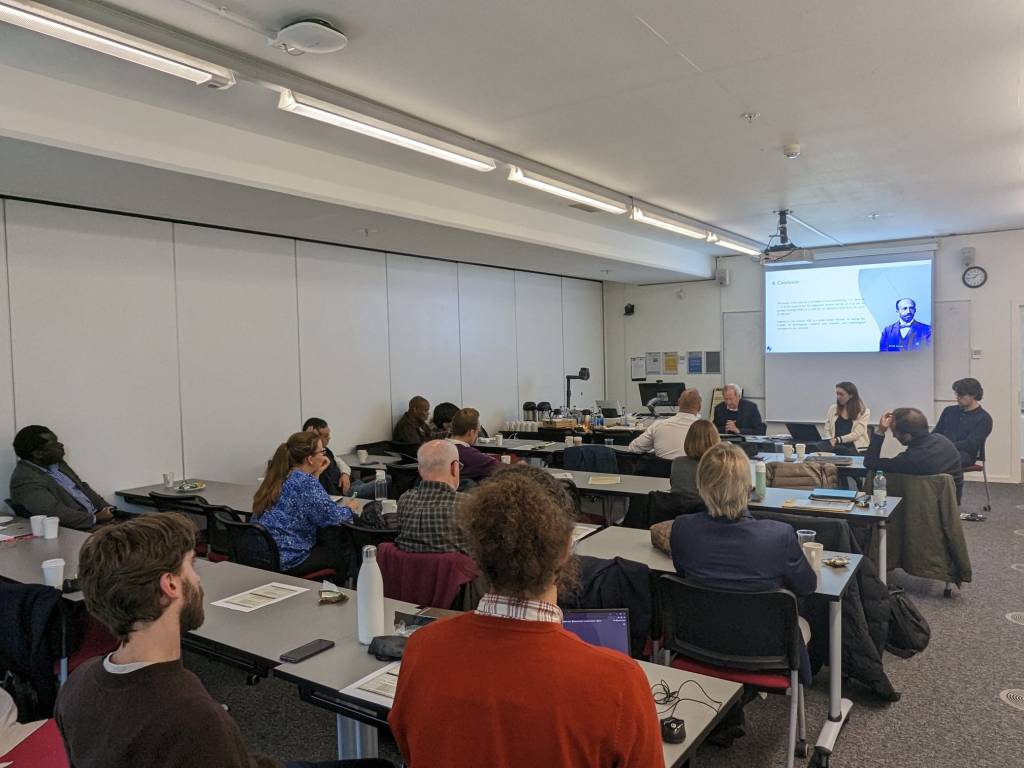
Steve Broadberry, Rebecca Simson, and Pablo Fernández Cebrián discussing economic growth and development in Africa
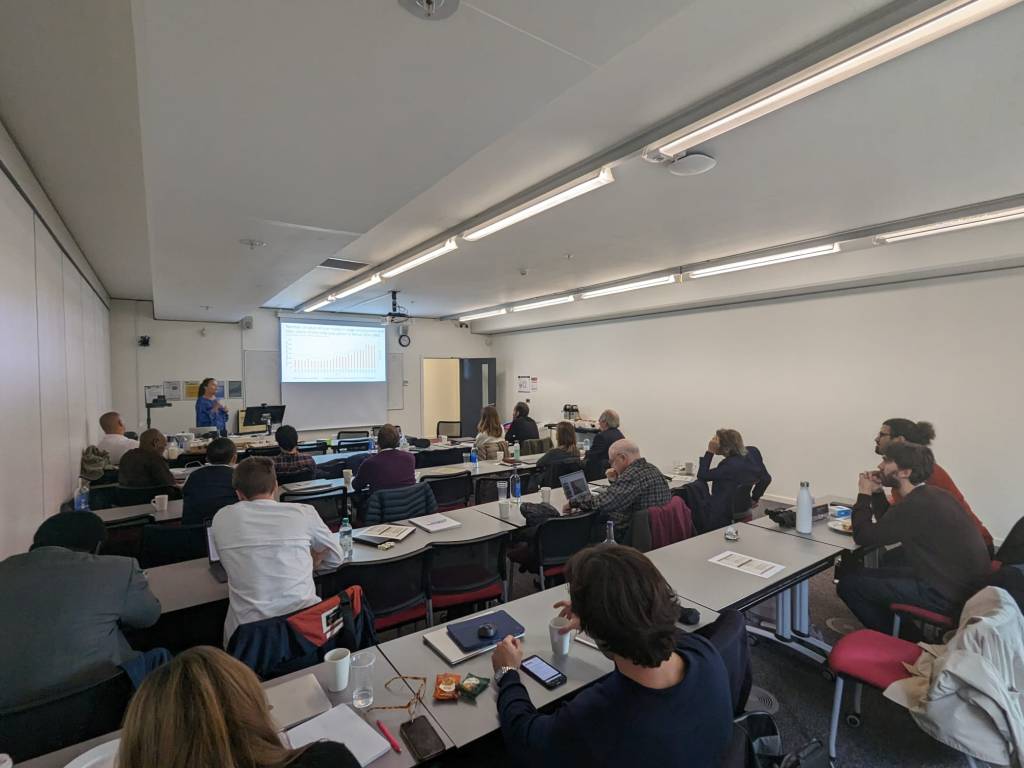
Ellen Hillbom
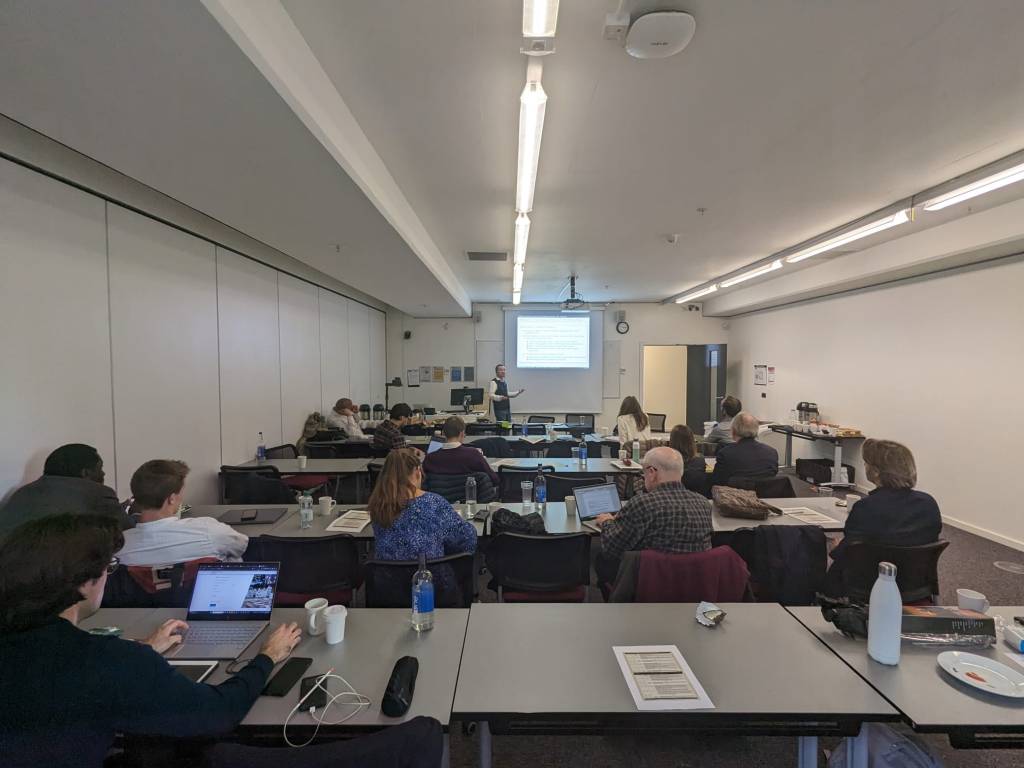
Zhexun Mo
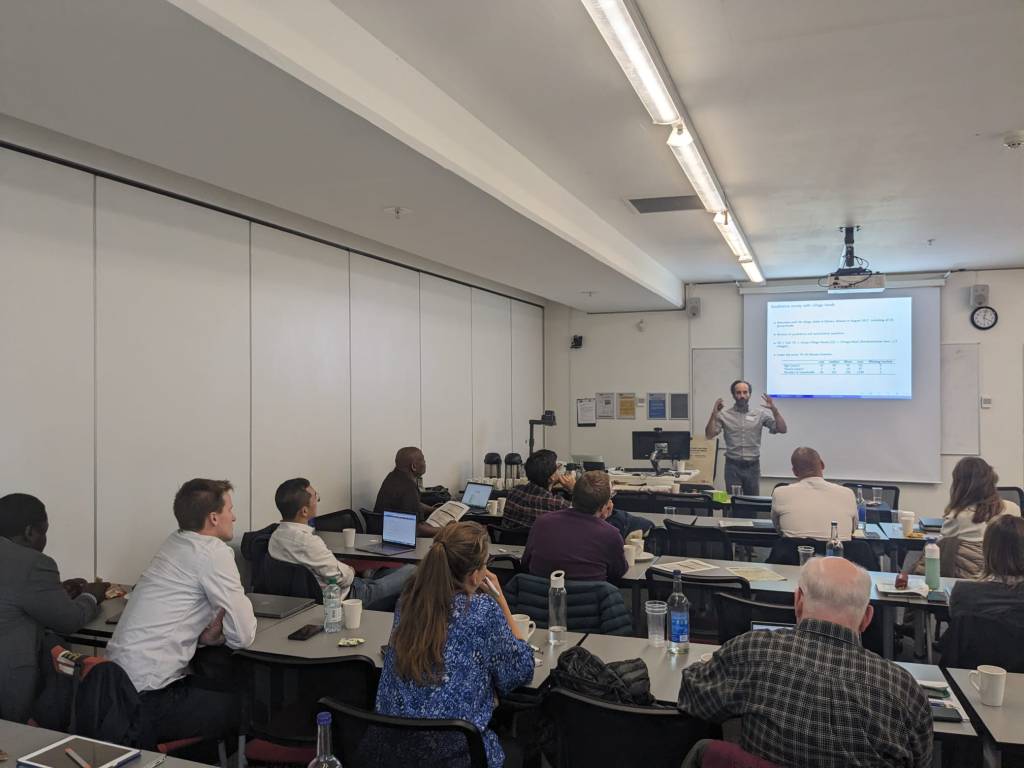
Leandro de Magalhães
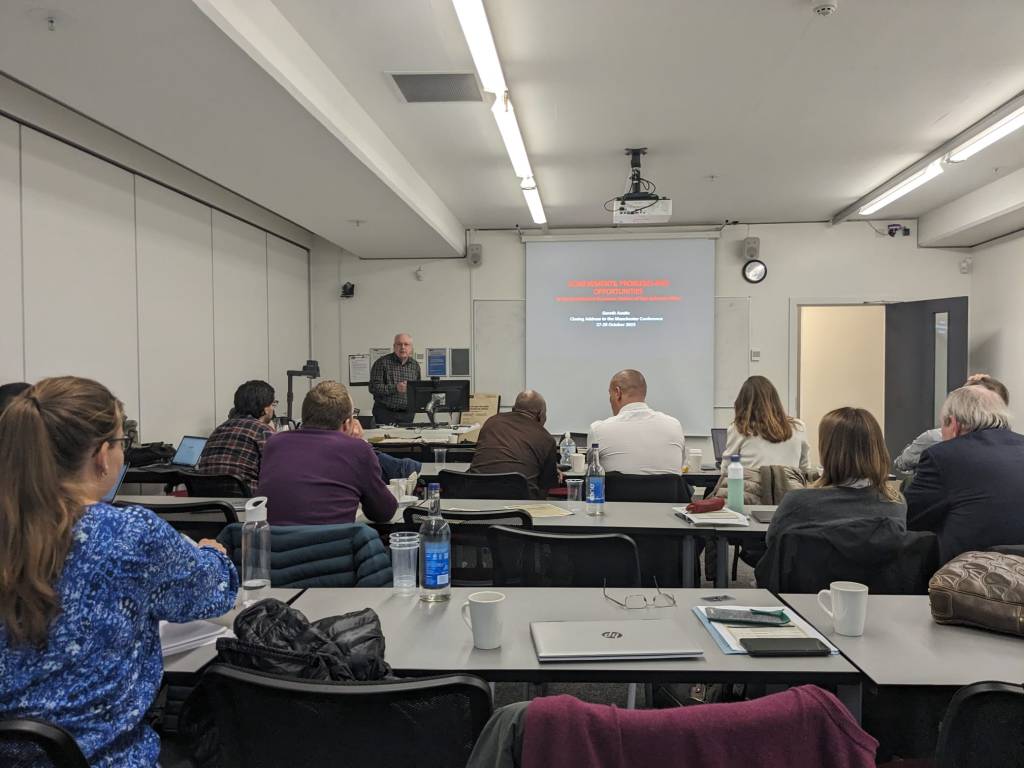
Gareth Austin
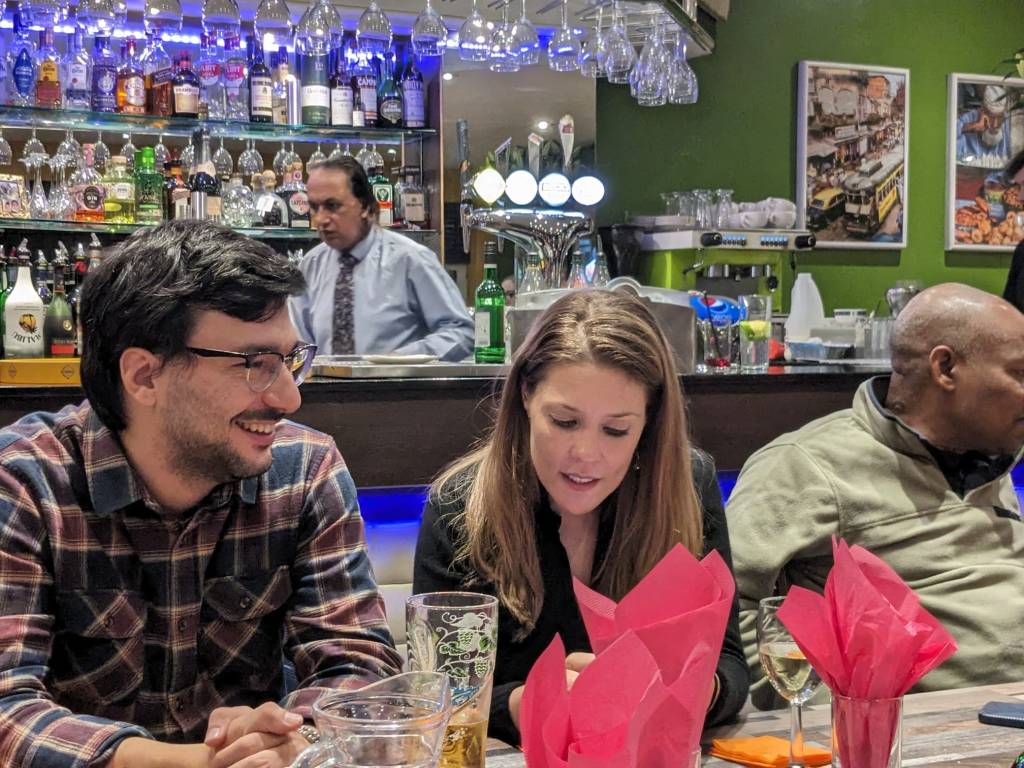
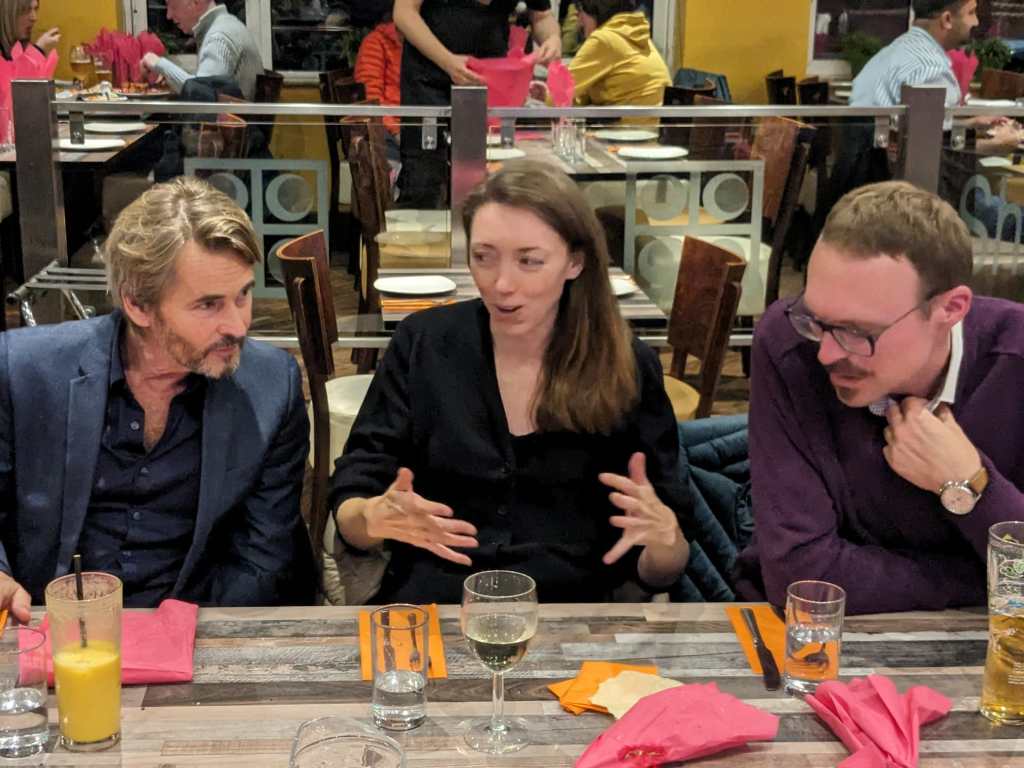
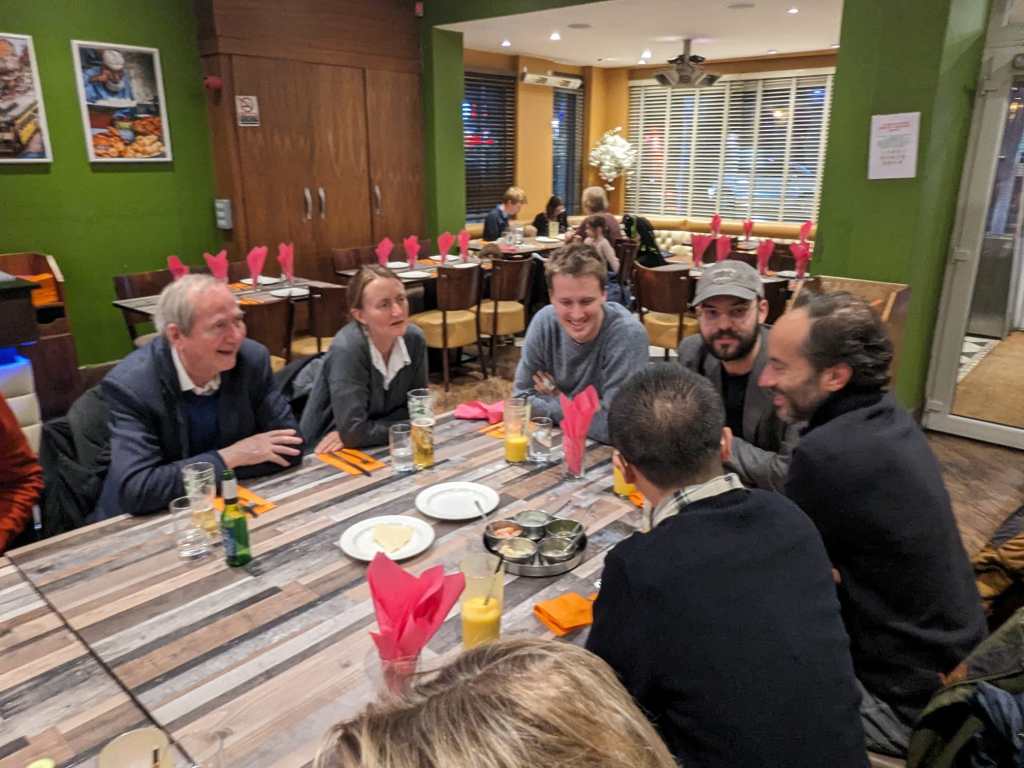
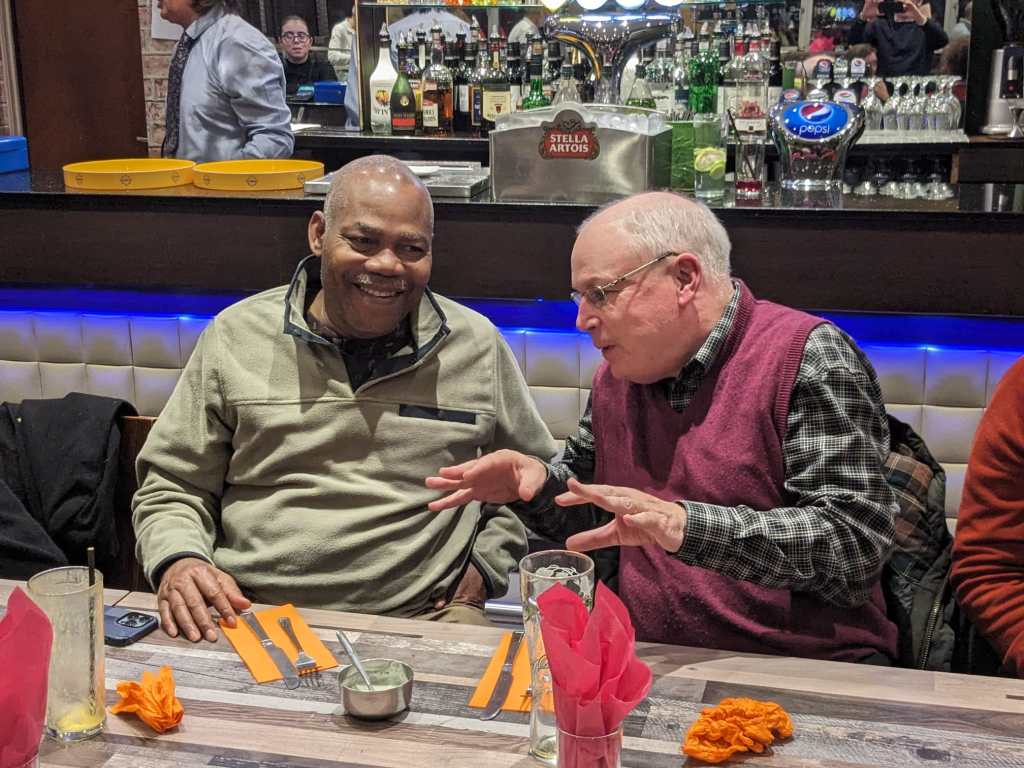
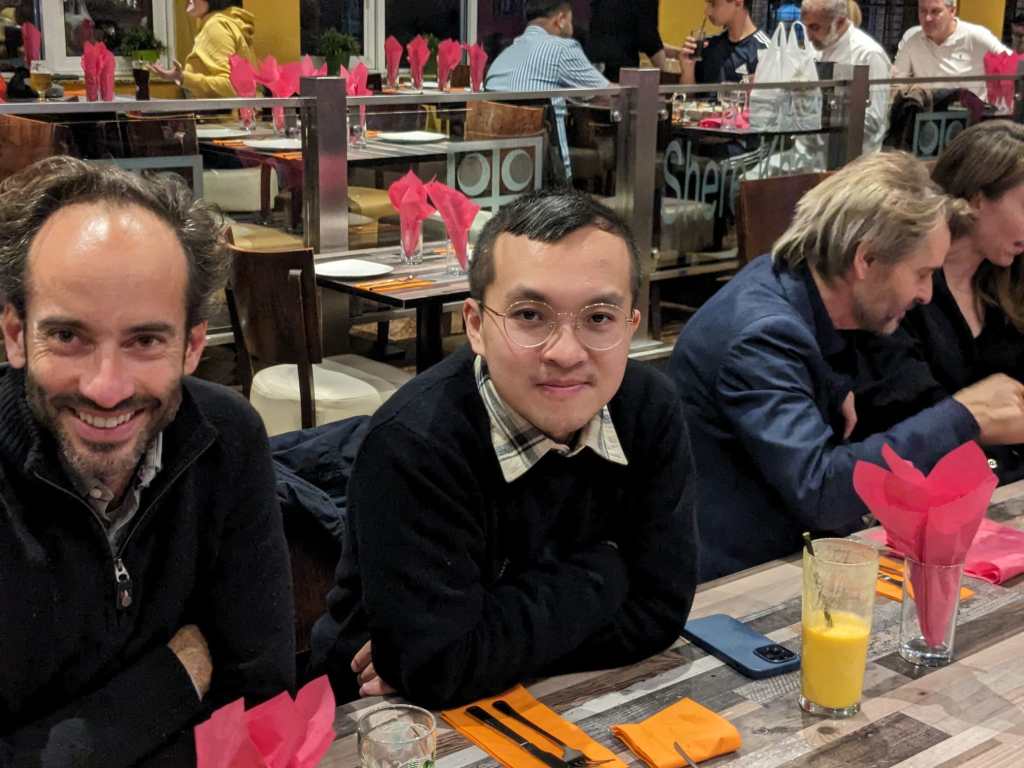
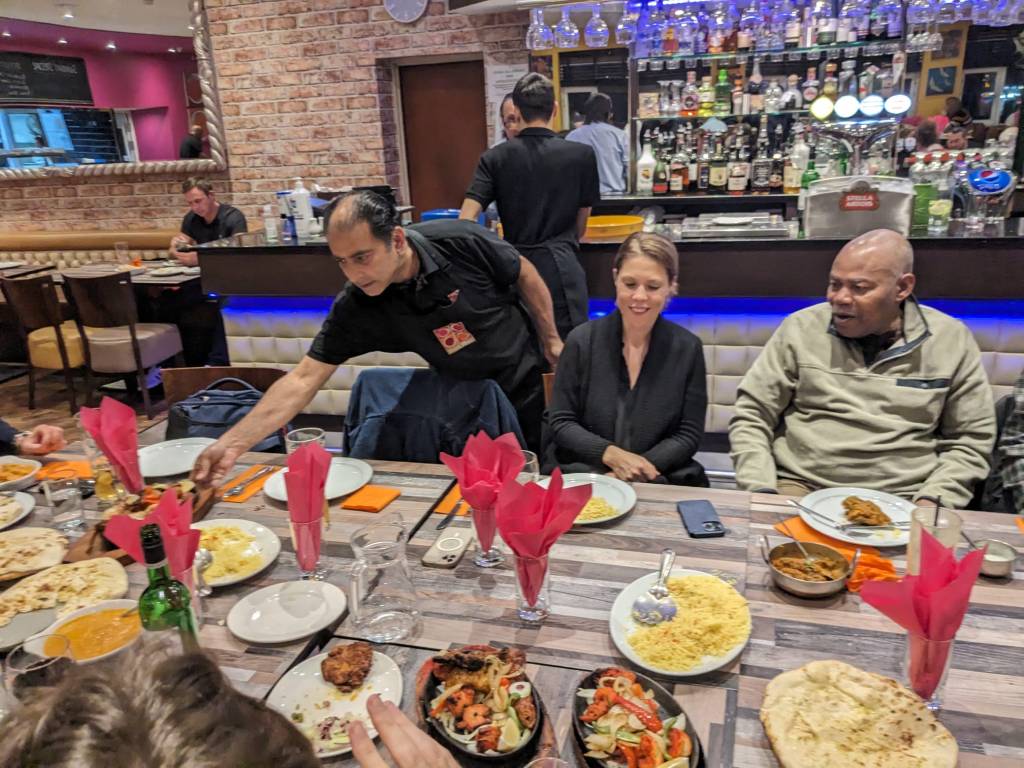
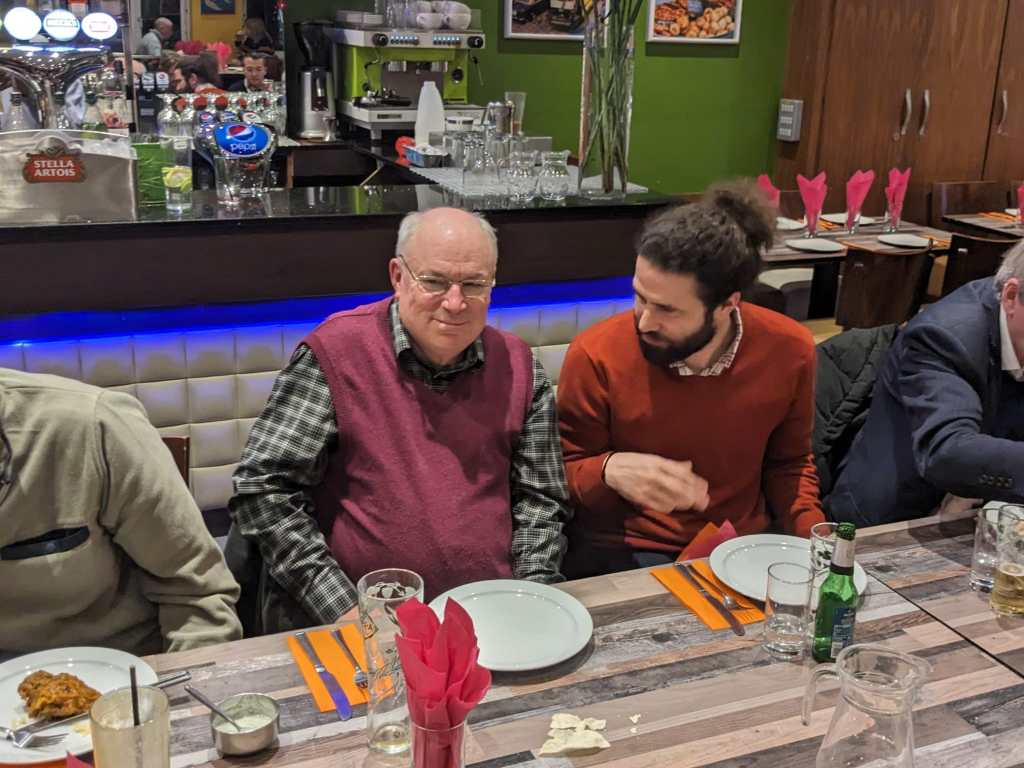
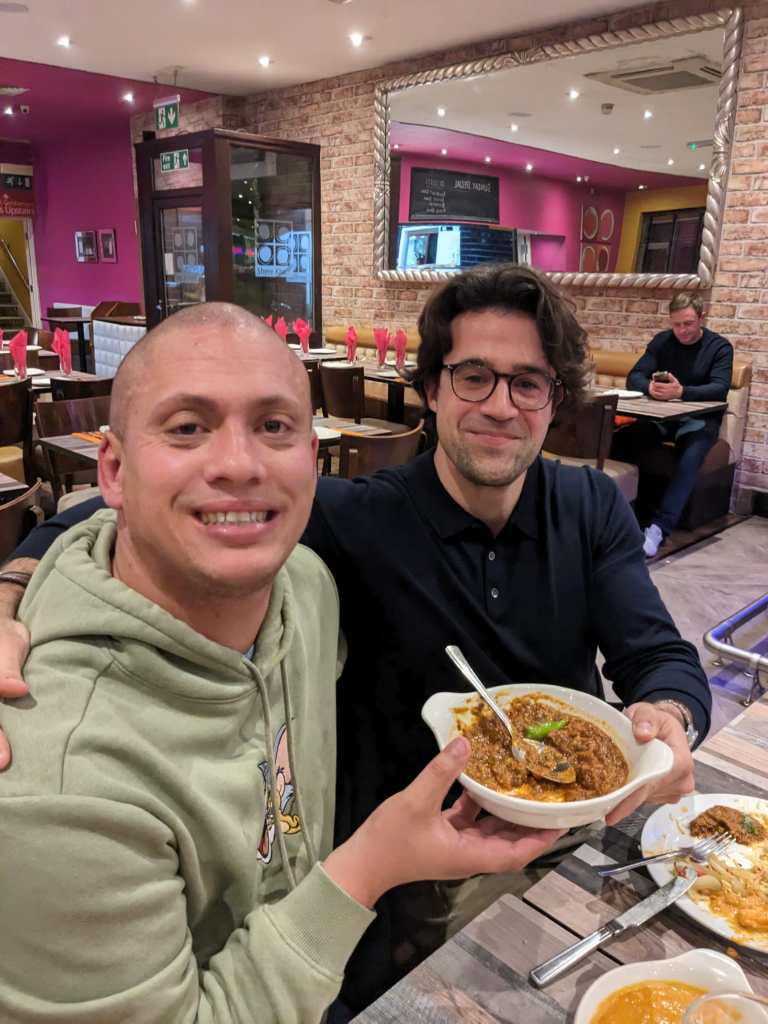
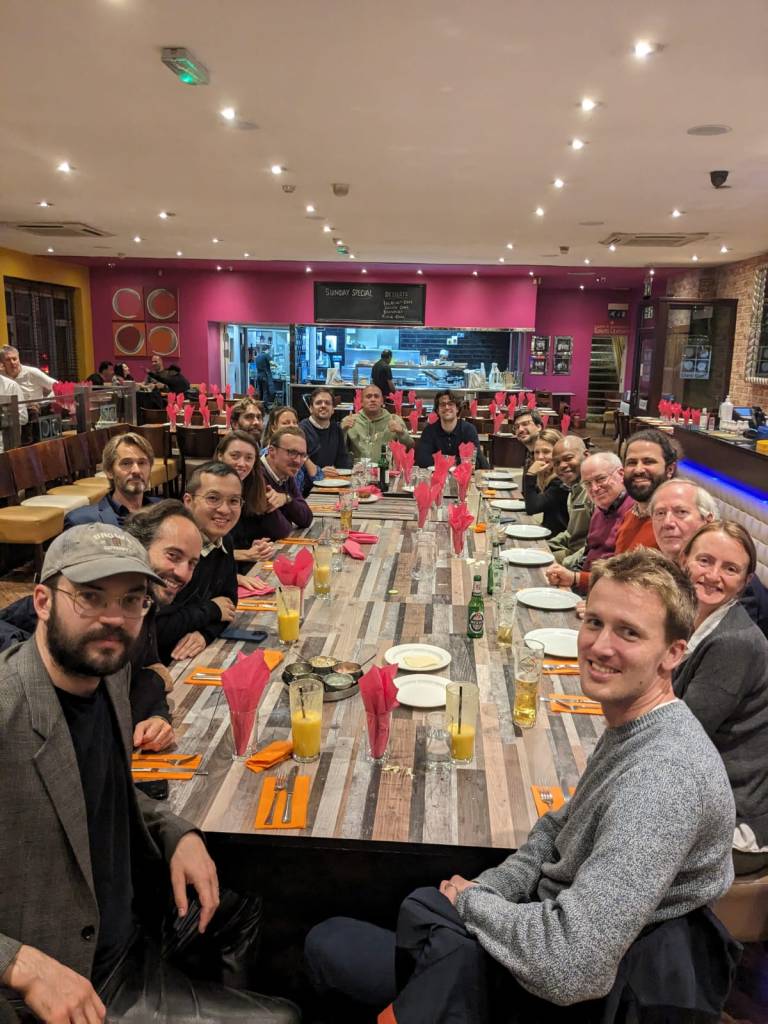
At its manufacturing peak, Stockport (near Manchester) had as many as 30 hat factories. Of course, the days when most men wore hats are gone, and the North has now de-industrialized, too. I’ve written before in this website about industrial heritage in the North, such as the Quarry Bank Mill, or the Bolton Steam museum.
I recently visited the Hat Works, a former factory in Stockport, now turned museum. The museum was very well put together, explaning the manufacturing process of hats in detail. Interesting examples include how the usage of mercury would create health problems to some workers, leading to behavior that led to the expression “mad as a hatter”. The guide was the amazing Lisa Ward, who tells her story to the BBC here.
Close to the museum, stands also the remarkable 1840 stockport railway viaduct, and WWII-era air raid shelters which protected locals during the Blitz.
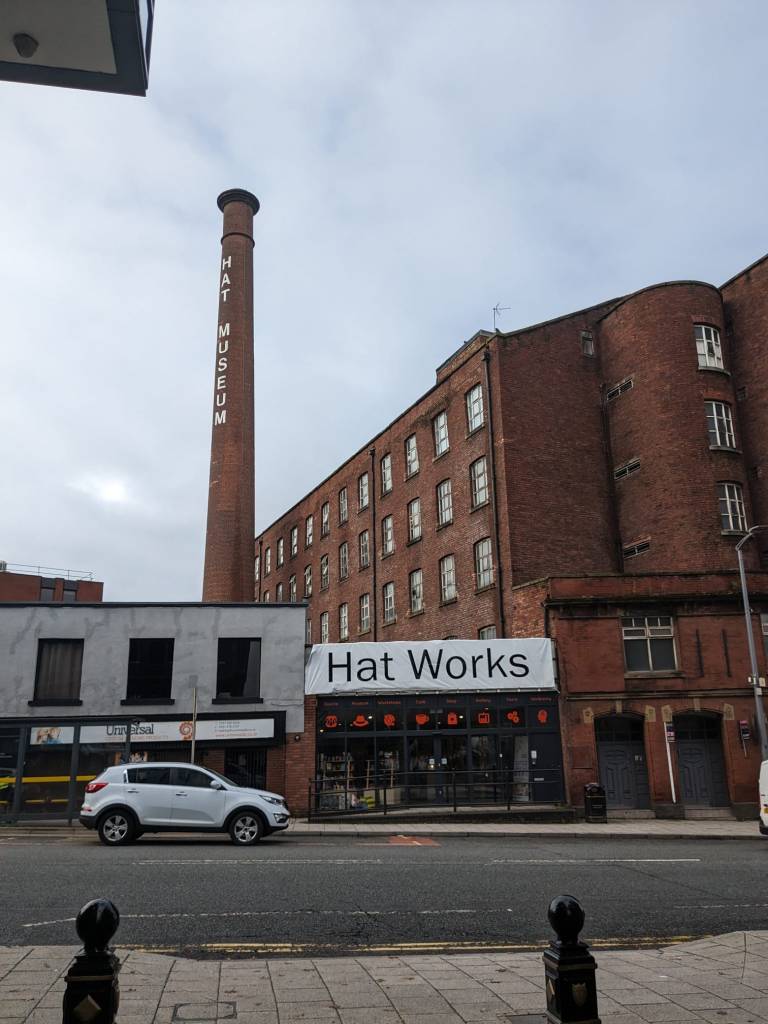
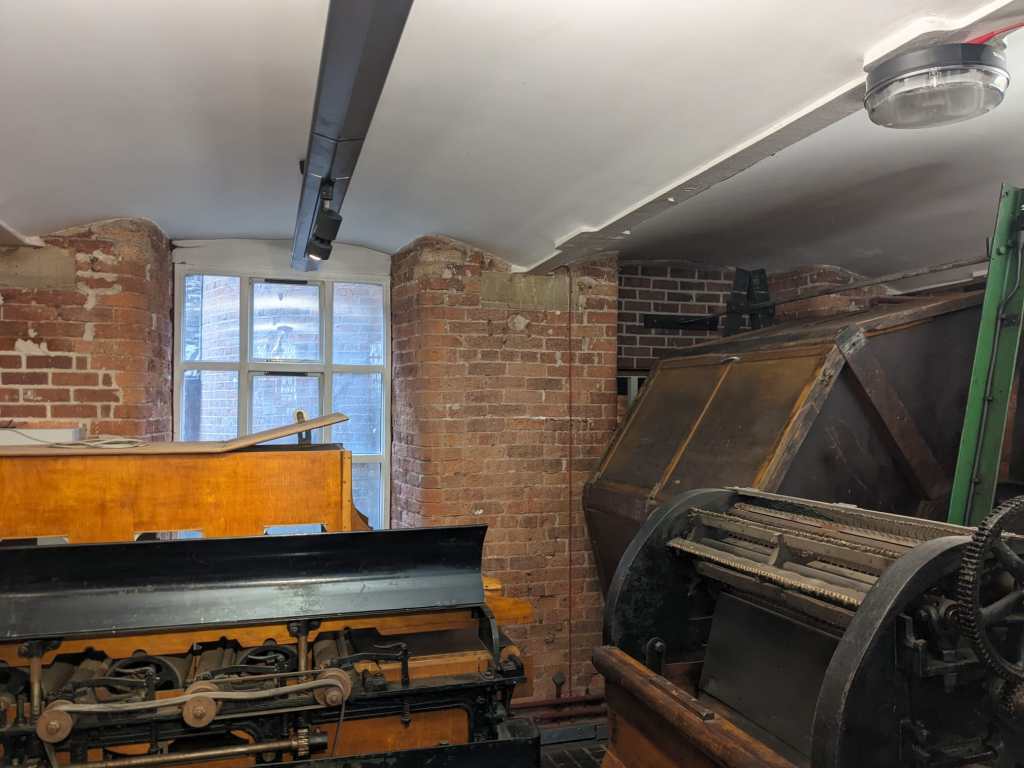
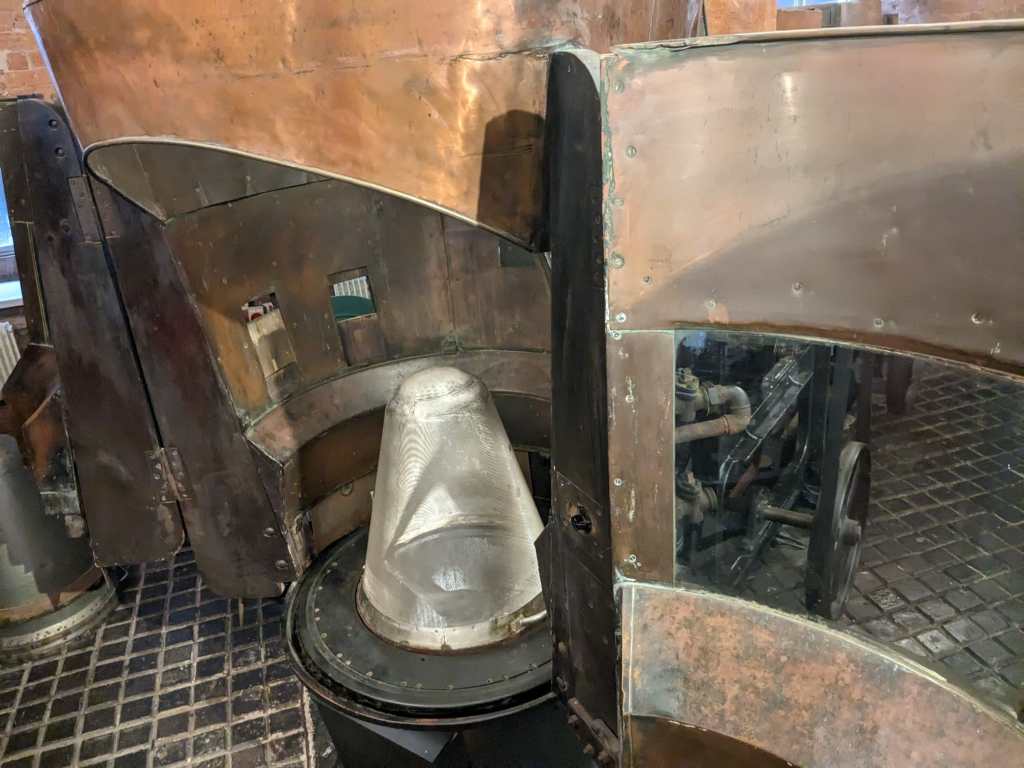
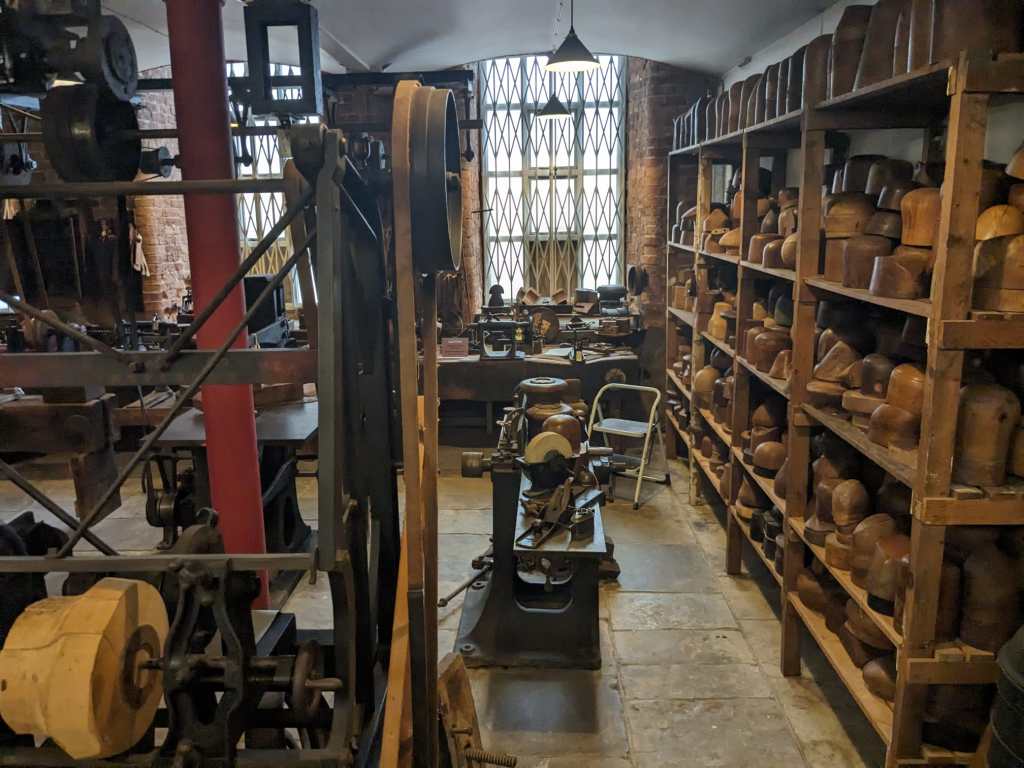
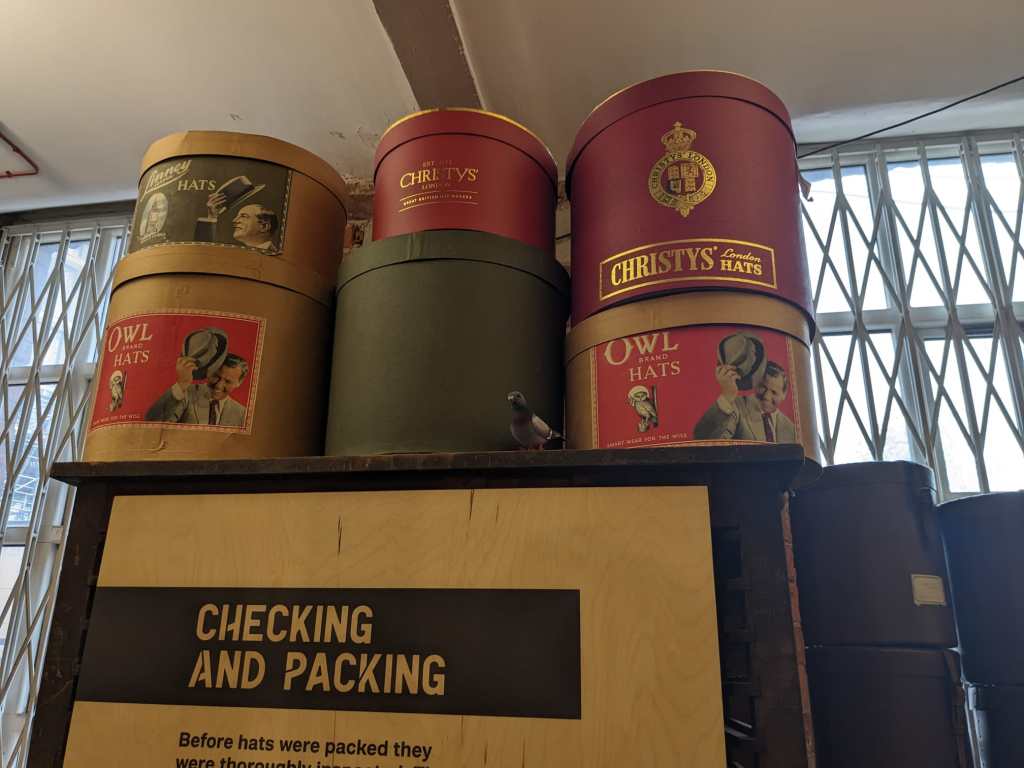
Here’s the program for the Arthur Lewis Lab Conference #4, previously announced here.
It will take place at the University of Manchester on October 27-28, 2023.
The program is still subject to minor changes (check this website frequently).
There will also be a dinner in both days (covered) in restaurants nearby, to be announced.
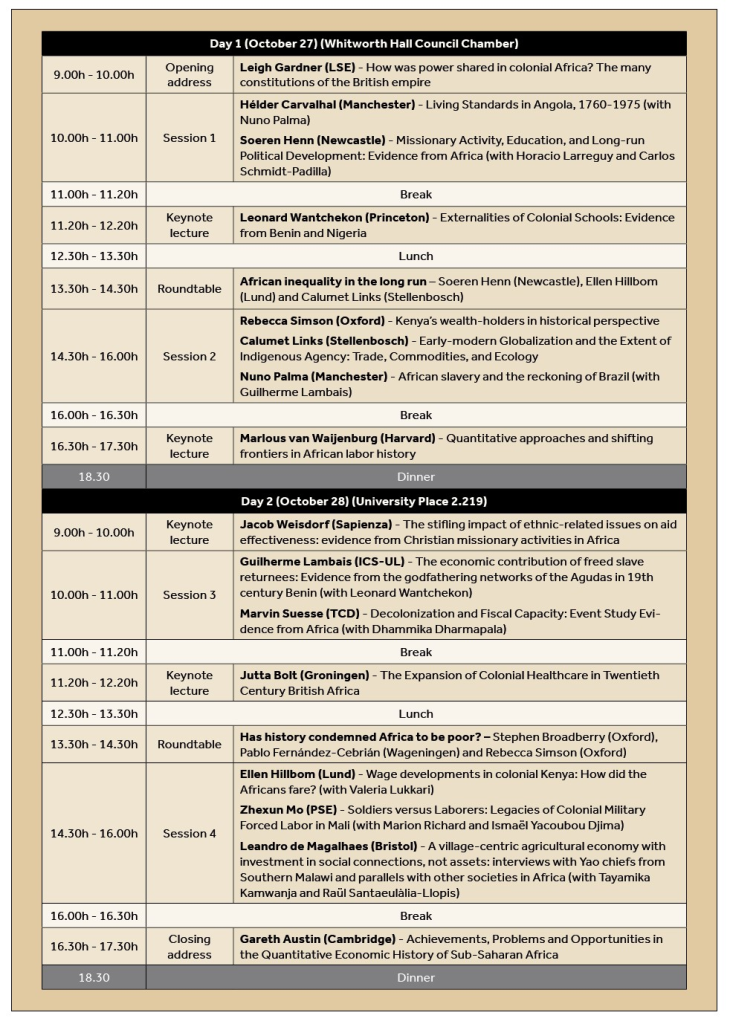
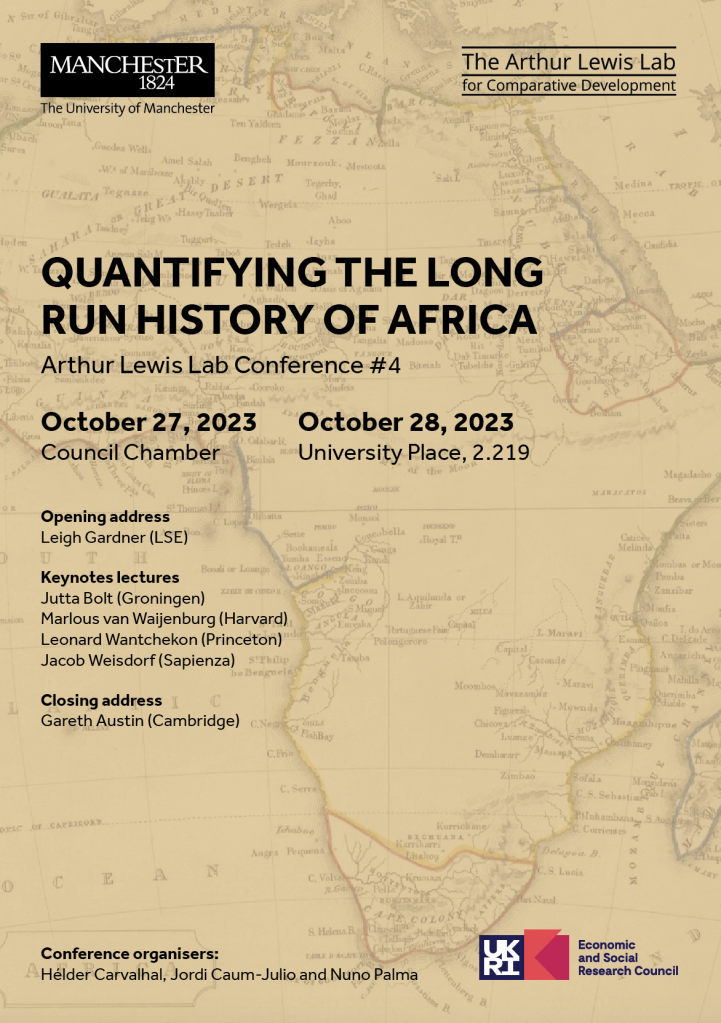
Conference to be held at the University of Manchester
Arthur Lewis Lab Conference #4
Part of the CEPR Economic History programme. With support from the ESRC New Investigator Grant, “Measuring the Great Divergence: A study of global standards of living, 1500-1950”, and the Arthur Lewis Lab for Comparative Development, University of Manchester.
Dates:
October 27 and 28, 2023
Note: This conference is expected to take place offline only.
Conference title:
Quantifying the Long Run History of Africa
Opening address:
Leigh Gardner (London School of Economics)
Keynote speakers:
Jutta Bolt (University of Groningen), Marlous van Waijenburg (Harvard University), Leonard Wantchekon (Princeton University), Jacob Weisdorf (University of Rome, Sapienza)
Closing address:
Gareth Austin (University of Cambridge)
Roundtable:
Has History condemned Africa to be poor?
Conference organizers:
Hélder Carvalhal, Jordi Caum, and Nuno Palma, Unversity of Manchester.
Conference theme:
We plan to accept papers that cover all periods of African economic history, but with a focus on the period prior to 1950.
Social visit
On the morning of the day after the conference, there will be an optional visit to the Whitworth Art Gallery followed by an informal lunch at the Curry Mile.
Costs and funding:
There will be no conference fee. We have secured ESRC funding which will cover catering costs and dinner, as well as travel and accommodation costs for graduate students who do not have funds from their own institutions. We expect presenters to be a mix of junior and senior scholars. Pending on other ongoing funding applications, we may be able to fund additional benefits for those who need this in order to attend. However, it is unlikely that we will be able to fund full travel and accommodation costs for all participants. Tenured faculty, in particular, will be expected to cover their travel and accommodation costs.
Accommodation
We suggest Hyatt Regency as the accommodation in-campus. For those looking for budget accommodation, we suggest Luther King House.
Deadlines:
September 11 – deadline to send us a paper proposal
September 25 – we will communicate the accepted proposals (and possibly a waiting list)
October 16 – final program will be posted
For applications, please email a paper proposal to Nuno Palma. You can apply with only a title and abstract, but complete manuscripts have a higher chance to get accepted into the program. A poster session may also take place. Applications by PhD students are encouraged.
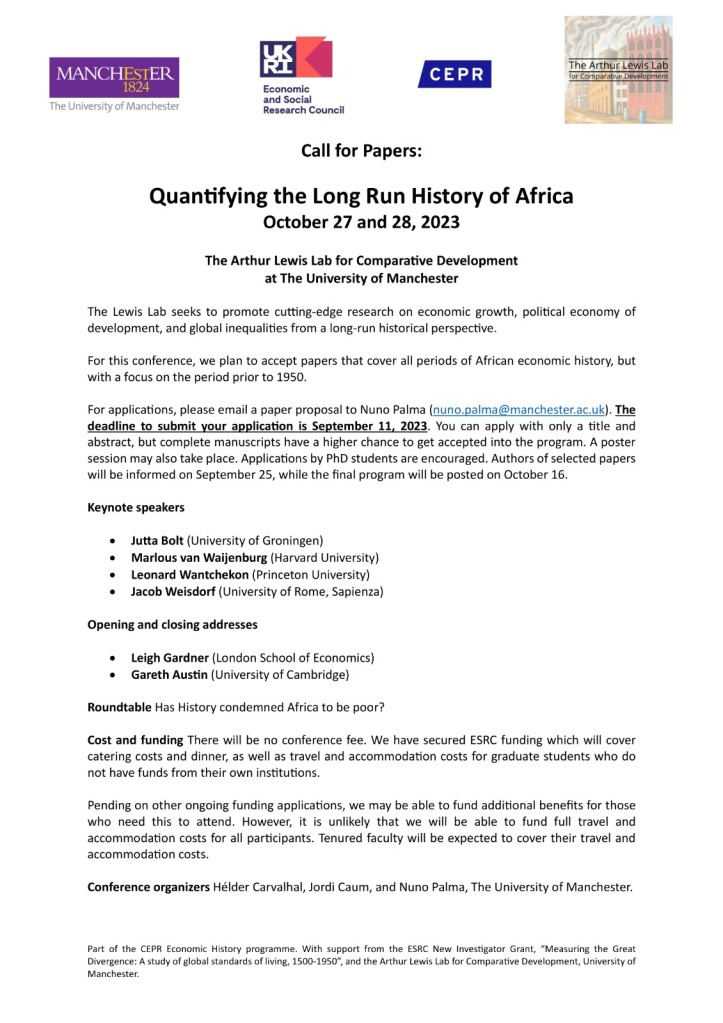

Lancashire and nearby regions obviously have much industrial heritage associated with one of history’s most important events, the First Industrial Revolution, which was associated with the appearance of modern economic growth in England, earlier than any other region in the world. I have written here before about the Quarry Bank Mill and the Paradise Mill. Last weekend, I visited the Bolton Steam Museum, which was great. Here are some pictures.

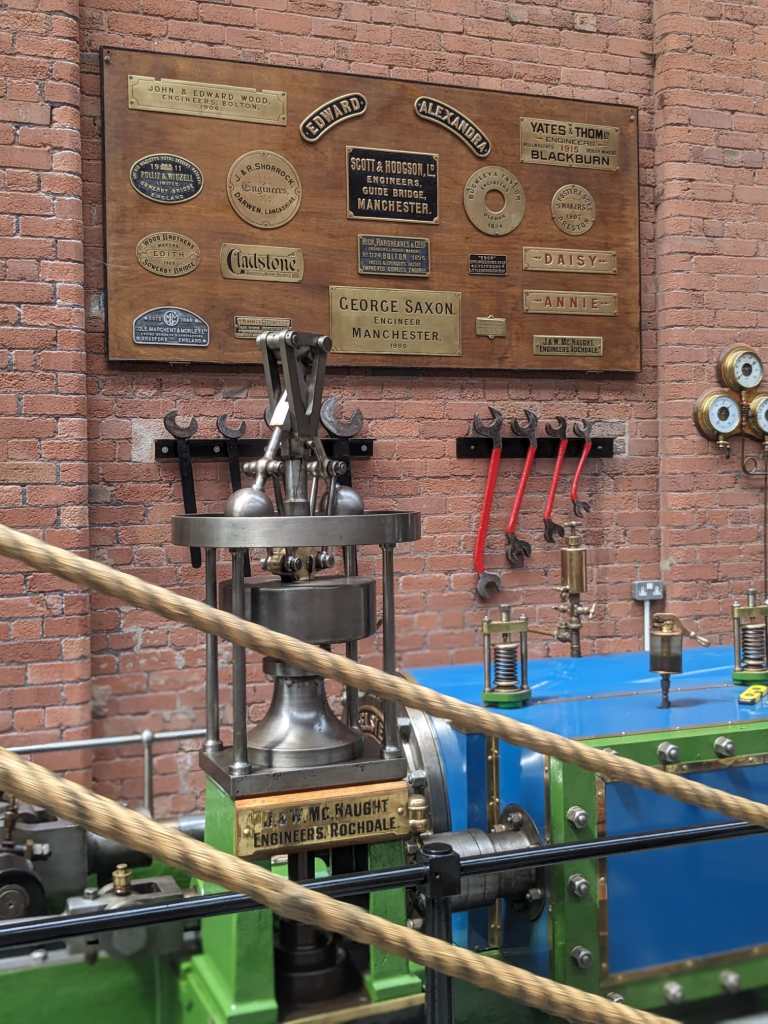
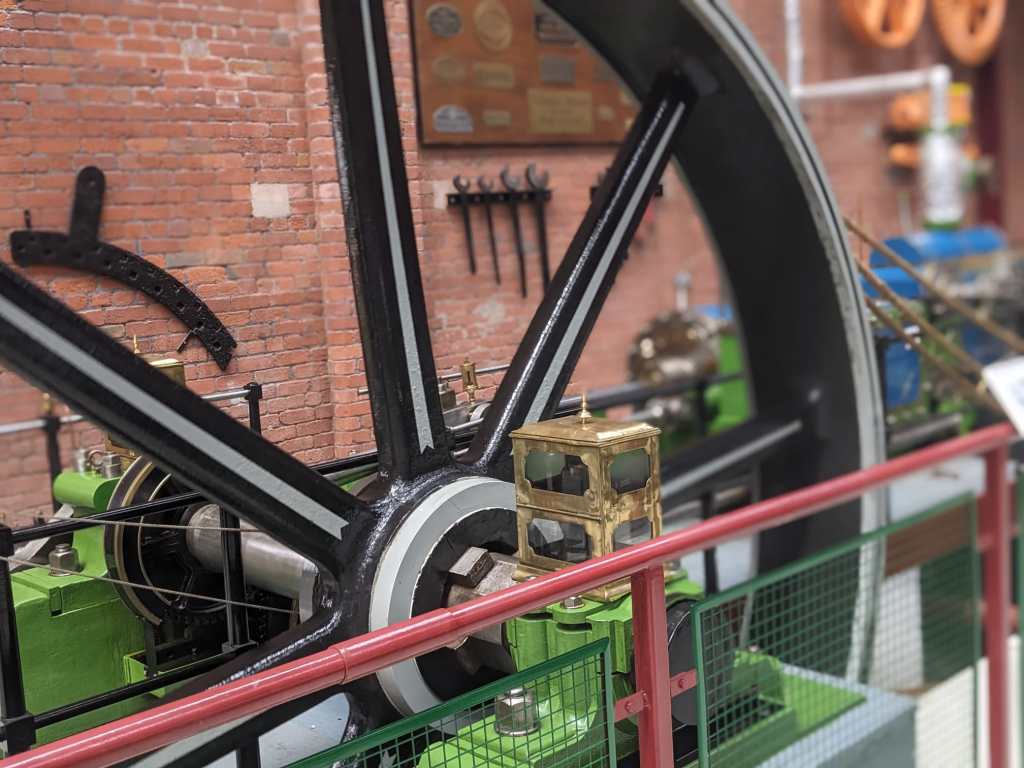
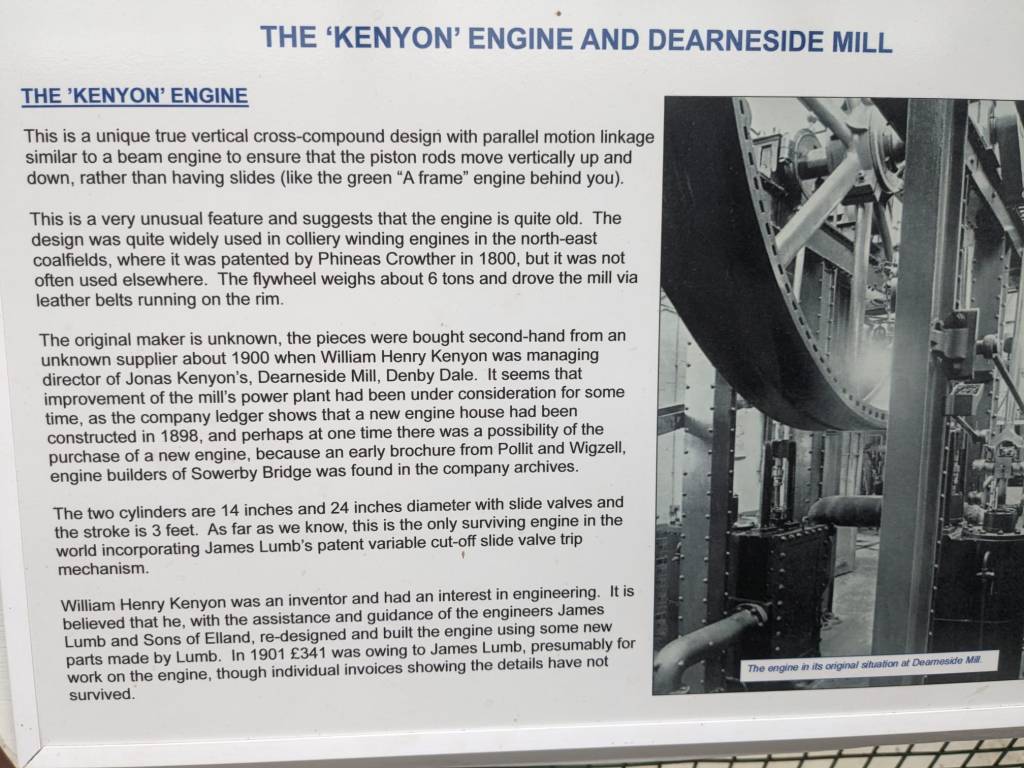
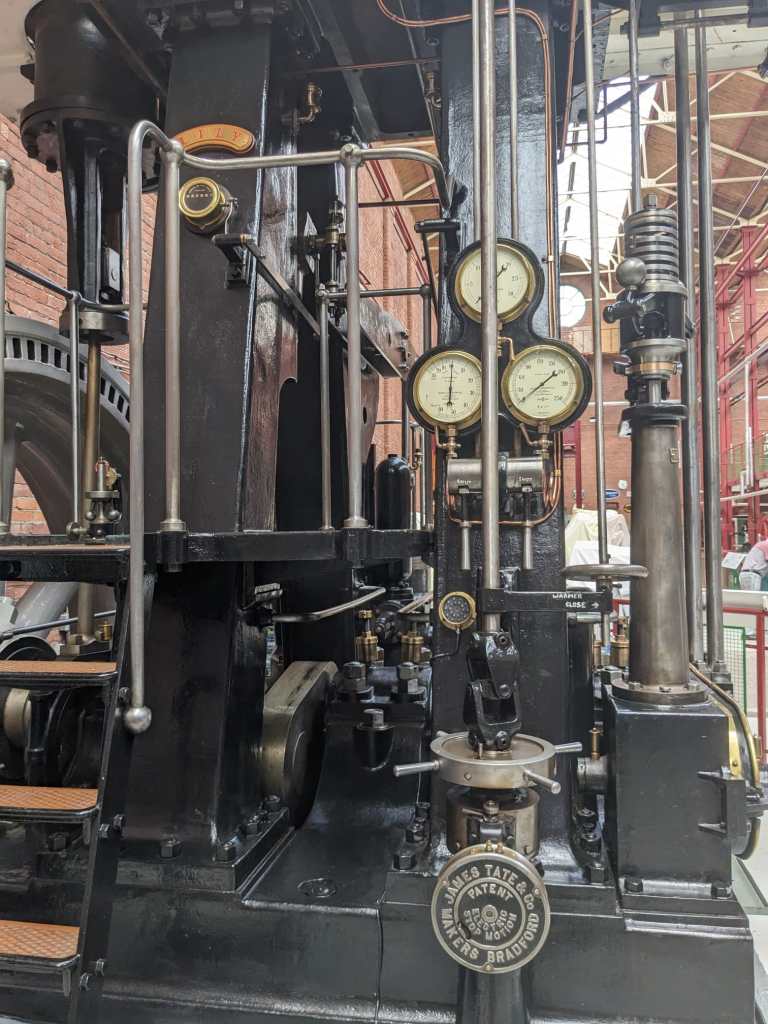
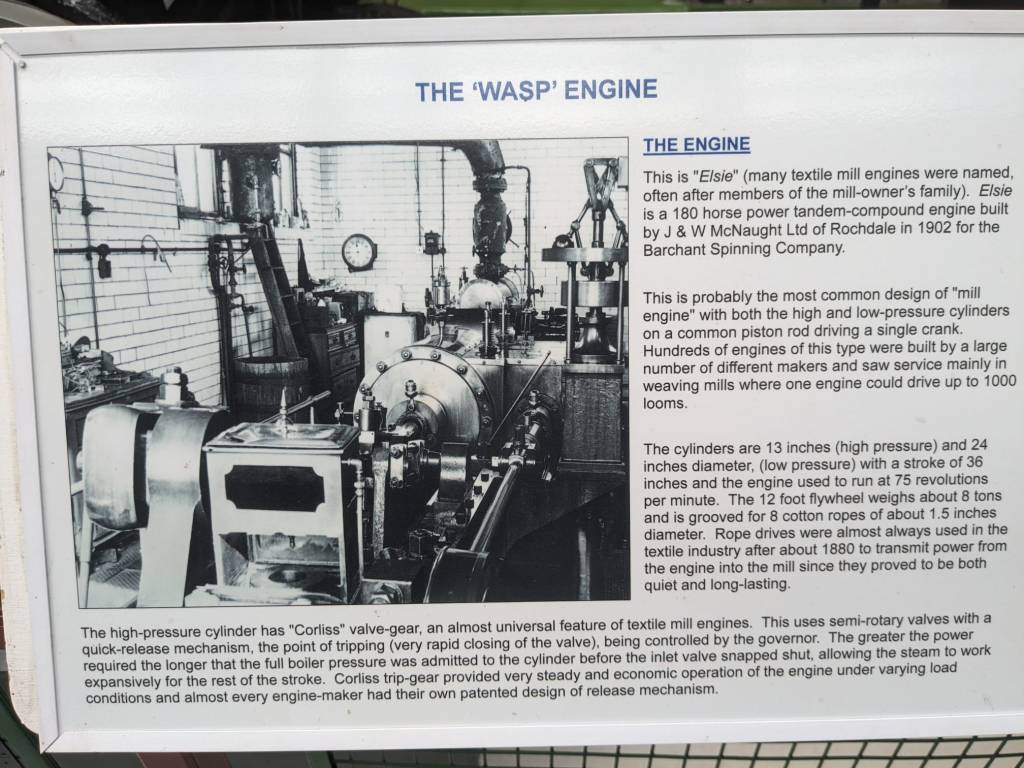
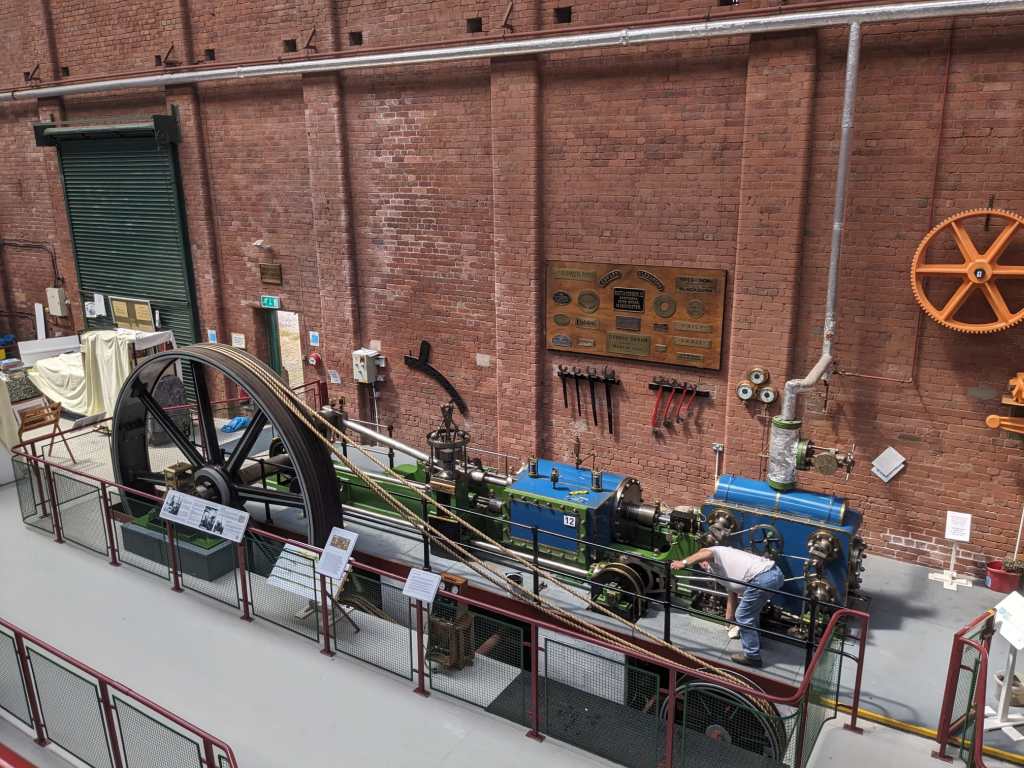
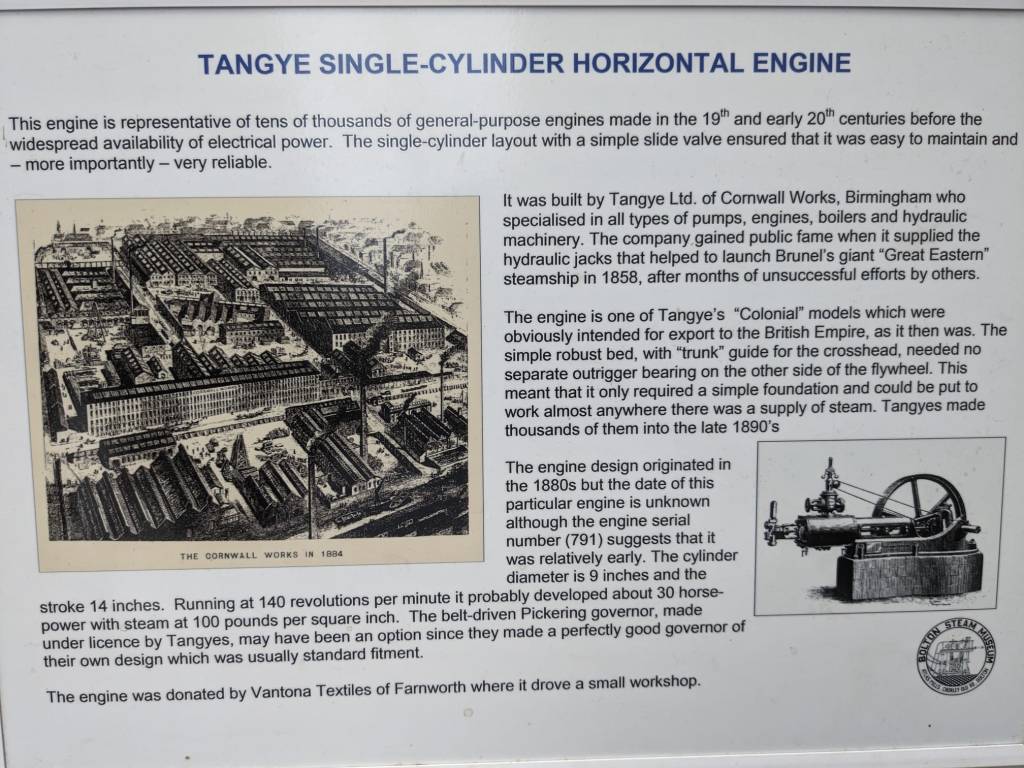
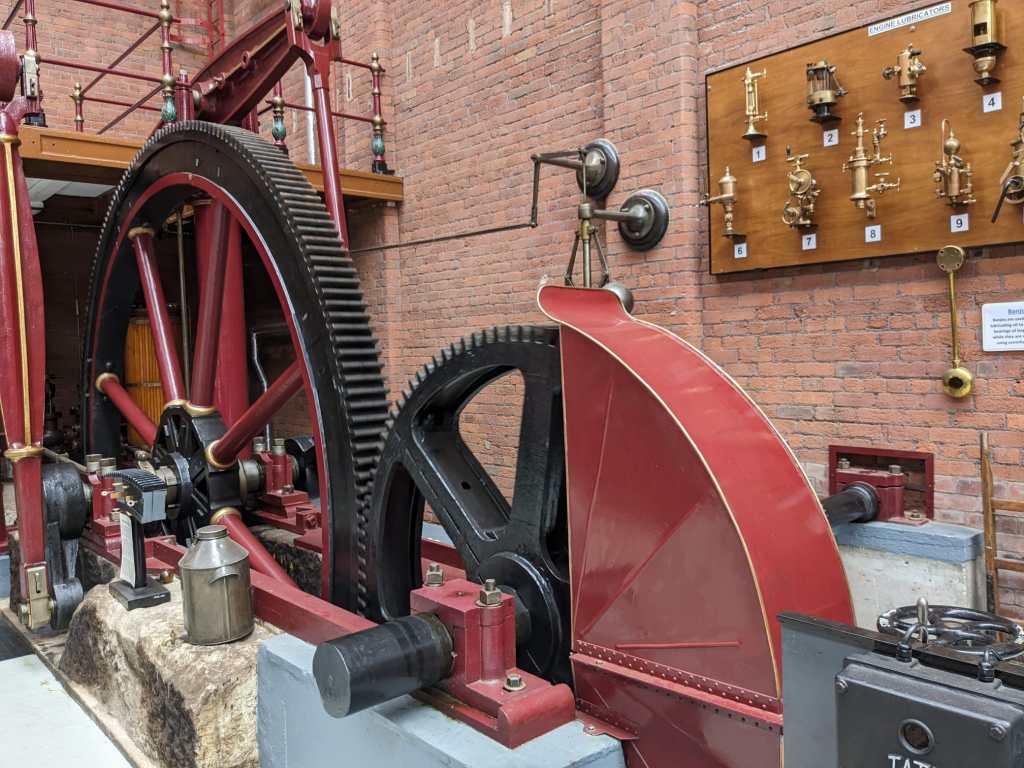
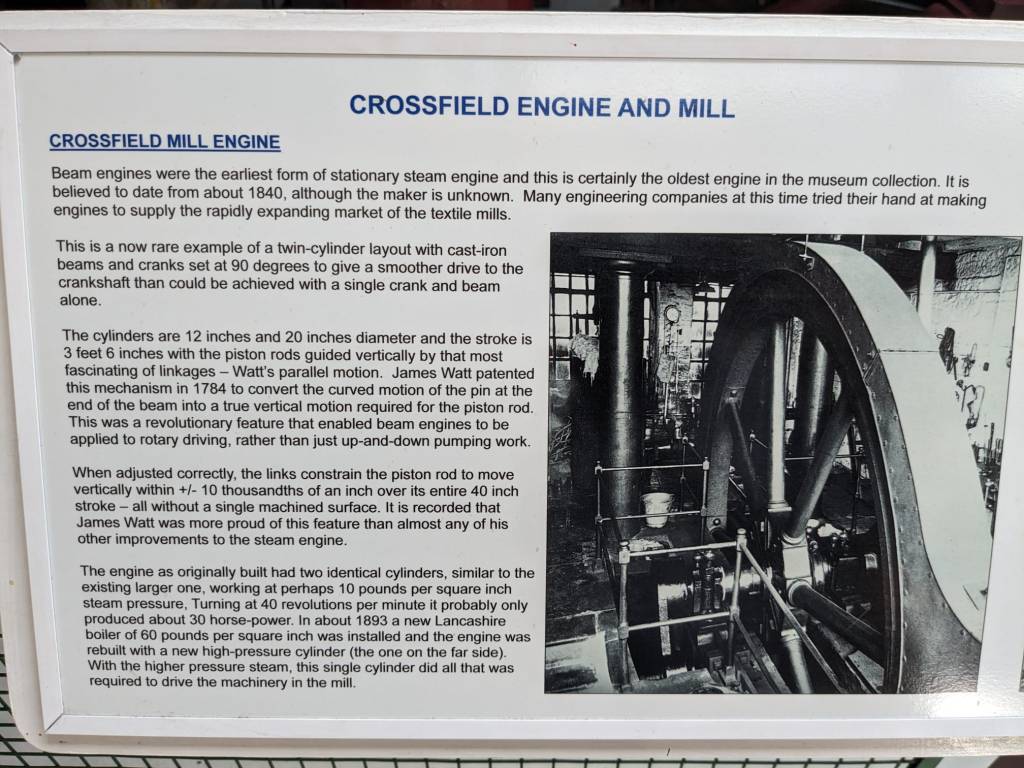
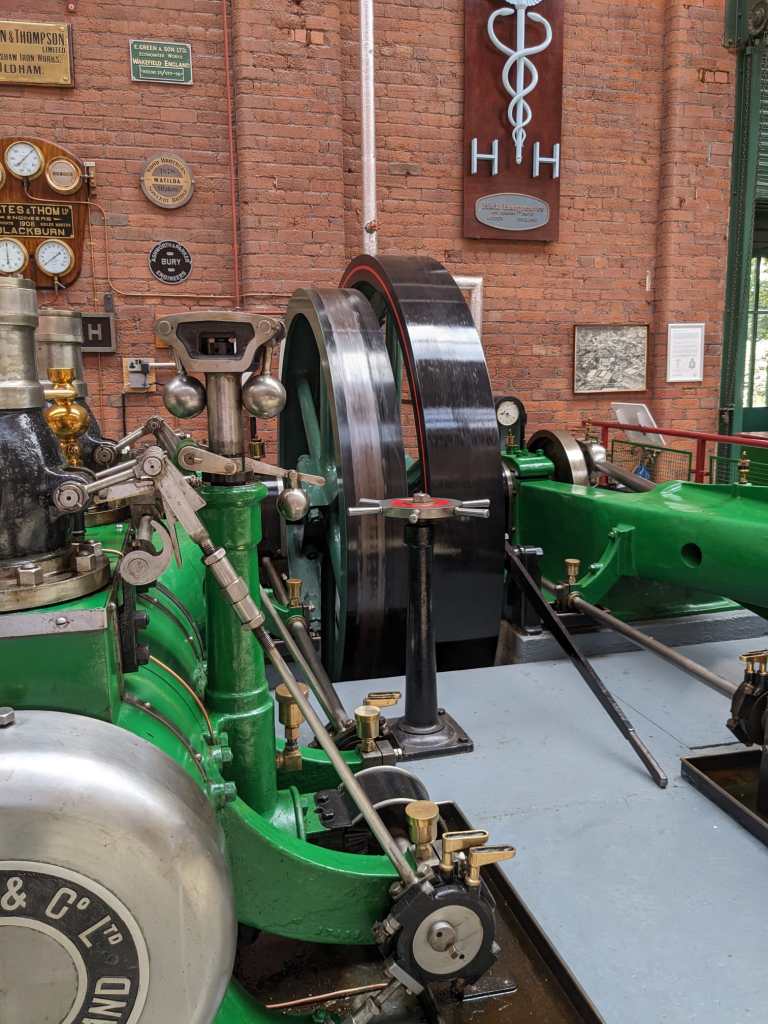
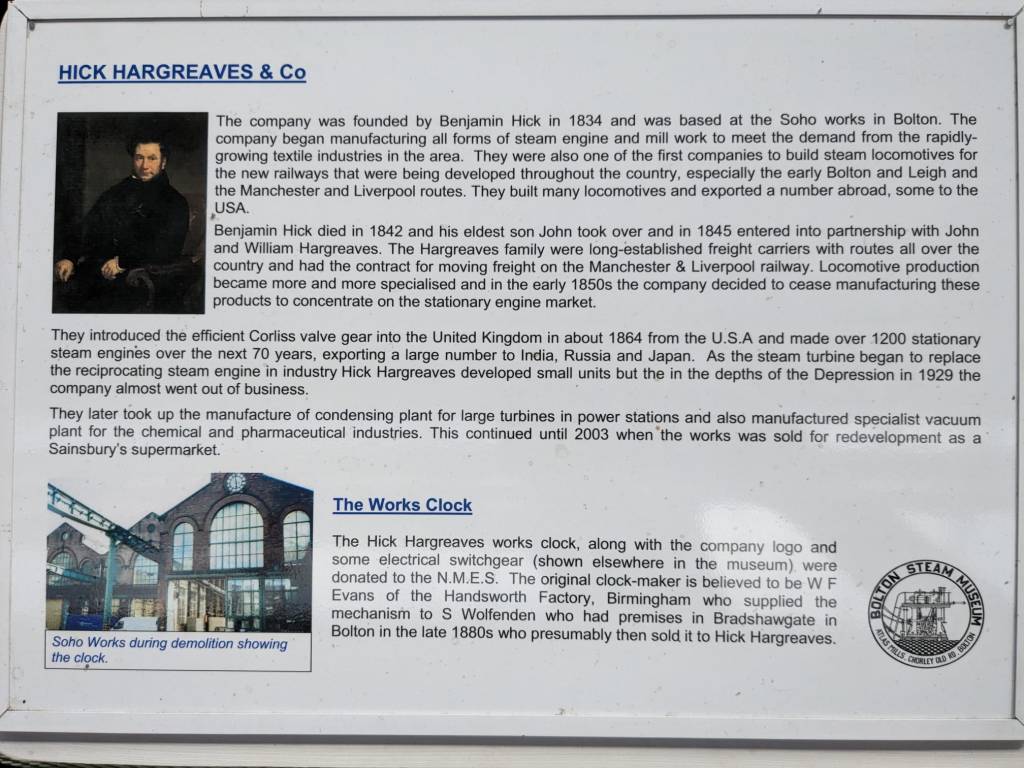
Previously announced here. This conference will take place at the University of Manchester on June 16, 2023.
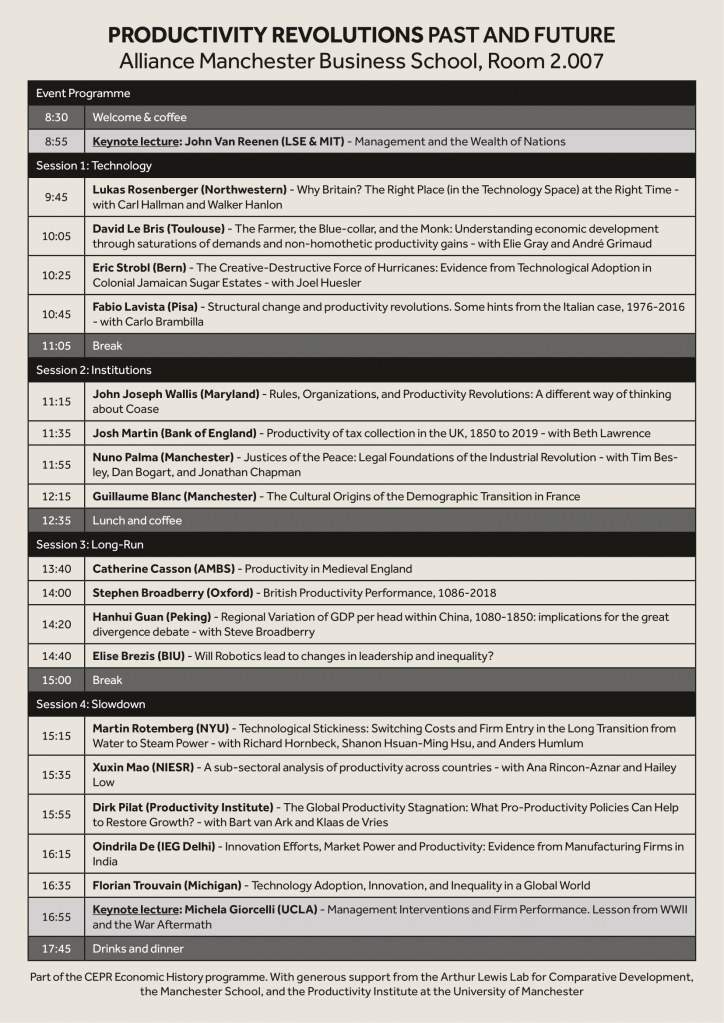
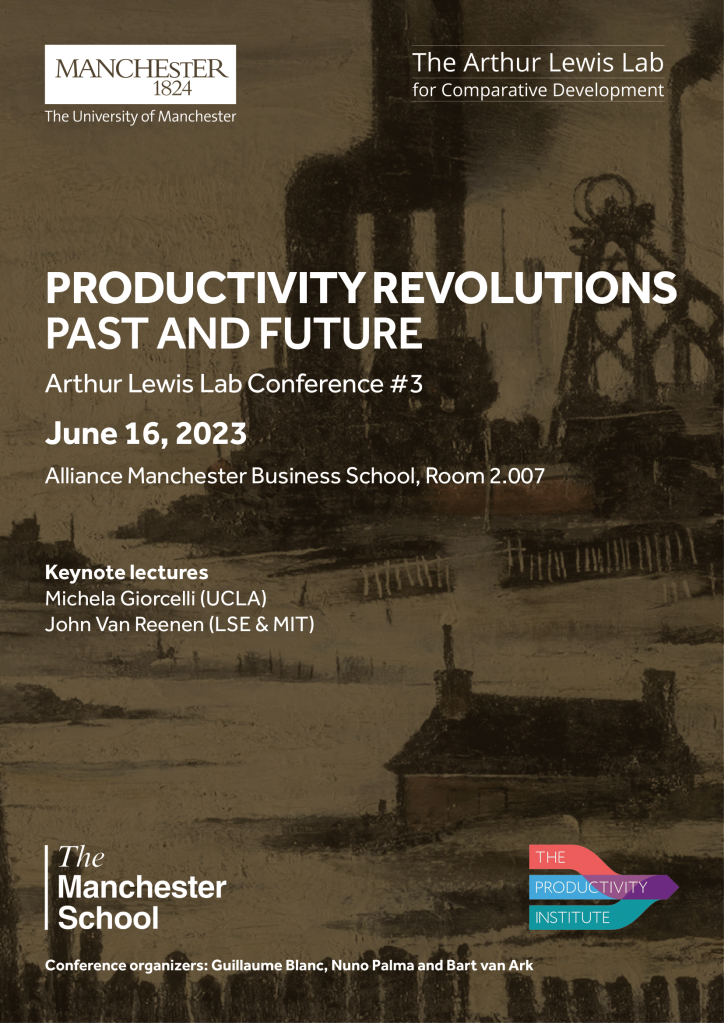
I have resigned from the editorial board of the Journal of Iberian and Latin American Economic History. The main reason has been the editor’s failure to implement a data sharing and replication policy which is now increasingly standard is all good academic journals, and correctly so. For example, in the field of economic history, The Journal of Economic History, Explorations in Economic History, and Economic History Review all have such policies in place at present.
After some back and forth with the main editor, Maria Angeles Pons, which I ultimately felt was going nowhere, I resigned. The editor said that this was discussed with the rest of the editors and they agreed that they wanted to include this only as a recommendation, and not as a compulsory request for accepted papers. Last October I wrote the following email to the editor:
To me, this matter of forcing authors to make data from published articles available to the scientific community is non-negotiable. It is essential for replication and dissemination. Almost all serious journals now do this and, in my view, not doing it seriously compromises the credibility of the journals that don’t. There is no good reason not to implement this policy.
It also seems to be that this, as well as changes to the instructions to Authors and other key decisions concerning the Journal (including choice of replacement editors and board members), should be jointly discussed with the Editorial Board and not simply decided by the Editors by themselves.
Accordingly, I would like to encourage you and the editors to rethink these critical decisions for the integrity of the scientific process.
Allow me to kindly and respectfully inform you that if the current policies do not change, I regret that I will resign from the board on Friday February 3rd, 2023. If so, I will also not be available to provide any further referee reports to this journal after that date.
The editor later asked for more time and I agreed, giving them another month. But ultimately nothing relevant changed as subsequent email exchanges were not fruitful. I believe that just recommending that authors do this but leaving it to their discretion is not enough. Yet to me, this matter is critical. I have sometimes wanted to inspect data which is not available anywhere, for example because the authors left academia or are otherwise unresponsive to emails. And there have been recent reports suggesting that, unfortunately:
“Most researchers don’t share their data. If you’ve ever read the words ‘data is available upon request’ in an academic paper, and emailed the authors to request it, the chances that you’ll actually receive the data are just 7 percent. The rest of the time, the authors have lost access to their data, changed emails, or are too busy or unwilling.”
I showed the above report to the editor. The follow-up discussion dragged for weeks, and as mentioned, I initially delayed my resignation while I tried to understand if we were getting somewhere. I explained and insisted that there was no reason to delay as change in policy could be implemented for free due to the existence of free permanent data repositories like Zenodo or openicpsr. At one point the editor said that the decision was transitory but I insisted that it was not clear how for long the current policy might be “transitory” for, and that it would risk becoming a “permanent transition process”. Still, the editor insisted that this was the decision for now, without providing any credible path to reform.
As in practice nothing has changed I have informed the editor of my resignation, effective immediately (though they’ll still have to update the webpage to take my name out). I have also informed the editor of my unwillingness to write any more referee reports for the journal while the current policy remains. As I informed the editor, I believe that making my reasons public is better than allowing for speculation by others concerning my reasons for resigning, and it may encourage future editors of this academic journal to be more serious about this important matter.
